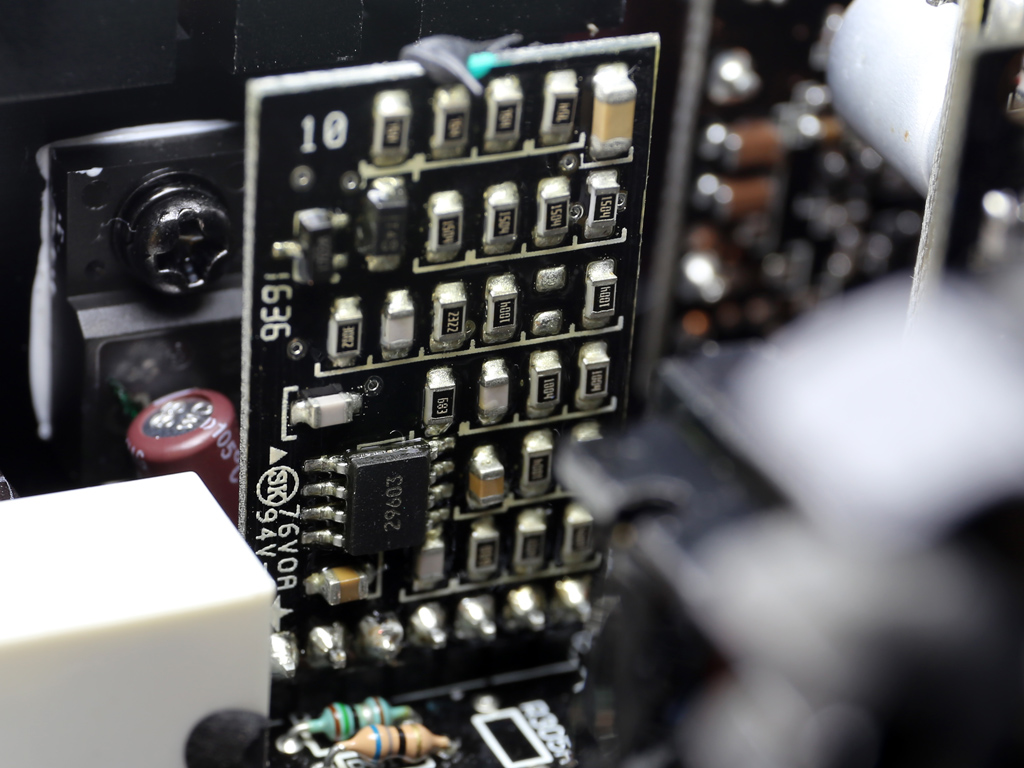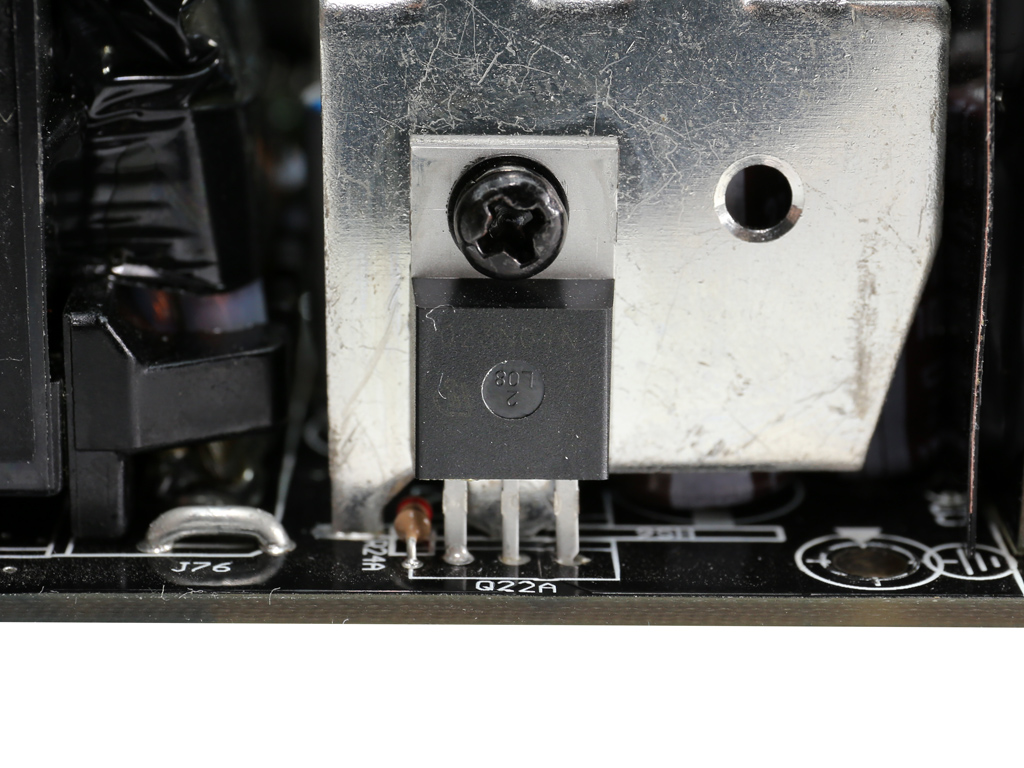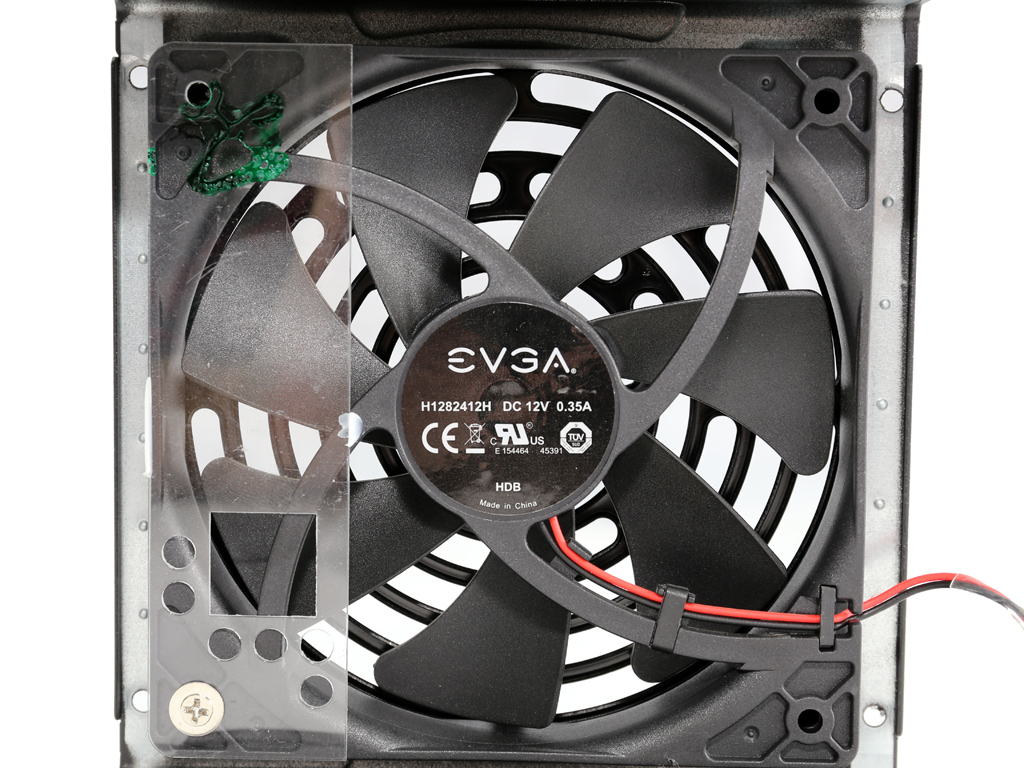EVGA SuperNOVA 850 G3 PSU Review
EVGA refreshed its popular G2 PSU family with the G3 one using Super Flower's Leadex II platform. The 850 G3 is the second strongest member in this line-up, offering high performance and a depth of just 15cm.
Why you can trust Tom's Hardware
A Look Inside And Component Analysis
Parts Description
Before proceeding with this page, we strongly encourage you to a look at our PSUs 101 article, which provides valuable information about PSUs and their operation, allowing you to better understand the components we're about to discuss. Our main tools for disassembling PSUs are a Thermaltronics soldering and rework station, and a Hakko FR-300 desoldering gun. Finally, for the identification of tiny parts we use an Andonstar HDMI digital microscope.
| General Data | |
|---|---|
| Manufacturer (OEM) | Super Flower |
| Platform Model | Leadex II |
| Primary Side | |
| Transient Filter | 4x Y caps, 3x X caps, 2x CM chokes, 1x MOV |
| Inrush Protection | NTC Thermistor & Relay |
| Bridge Rectifier(s) | 1x Shindengen U30K80R (800V, 30A @ 97°C) |
| APFC MOSFETs | 2x Infineon IPA50R140CP (550V, 15A @ 100°C, 0.14Ω) |
| APFC Boost Diode | 1x CREE C3D08060A (600V, 8A @ 152°C) |
| Hold-up Cap(s) | 1x Nippon Chemi-Con (400V, 680uF, 2000h @ 105°C, KMR) |
| Main Switchers | 2x Infineon IPA50R140CP (550V, 15A @ 100°C, 0.14Ω) |
| APFC Controller | SF29603 |
| Resonant Controller | SF201T |
| Topology | Primary side: Half-Bridge & LLC Resonant Controller Secondary side: Synchronous Rectification & DC-DC converters |
| Secondary Side | |
| +12V MOSFETs | 4x Infineon IPP023N04N G (40V, 90A @ 100°C, 2.3mΩ) |
| 5V & 3.3V | DC-DC Converters: 8x Infineon BSC0906NS (30V, 40A @ 100°C, 4.5mΩ) PWM Controller: 2x On Semiconductor NCP1587A |
| Filtering Capacitors | Electrolytics: Chemi-Con (1-5000 @ 105°C, KZE), Chemi-Con (4-10,000 @ 105°C, KY), Chemi-Con (105°C, W), Chemi-Con (1000 @ 105°C, KRG), Teapo - Modular cables (1-3000 @ 105°C, SC) Polymers: Chemi-Con |
| Supervisor IC | SF201T (probably) & LM324ADG & LM339A |
| Fan Model | EVGA H1282412H (12V, 0.35A, 2170 RPM, Hydro Dynamic Bearing) |
| 5VSB Circuit | |
| Rectifier | Mospec S10C60C |
| Standby PWM Controller | 29604 |
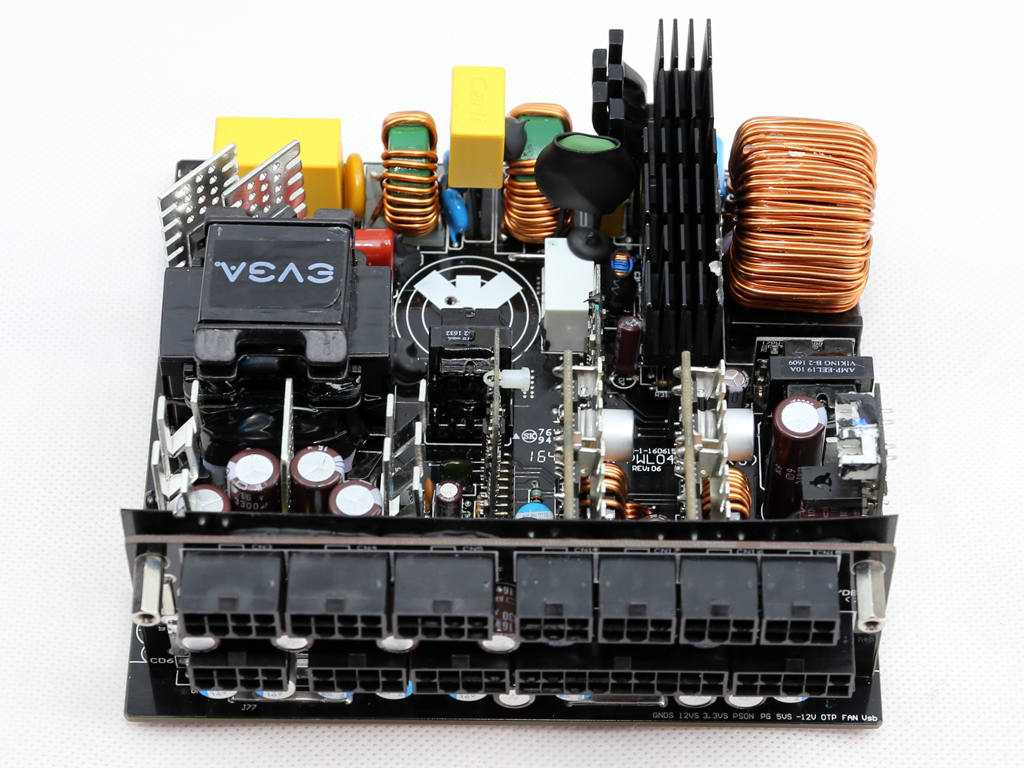
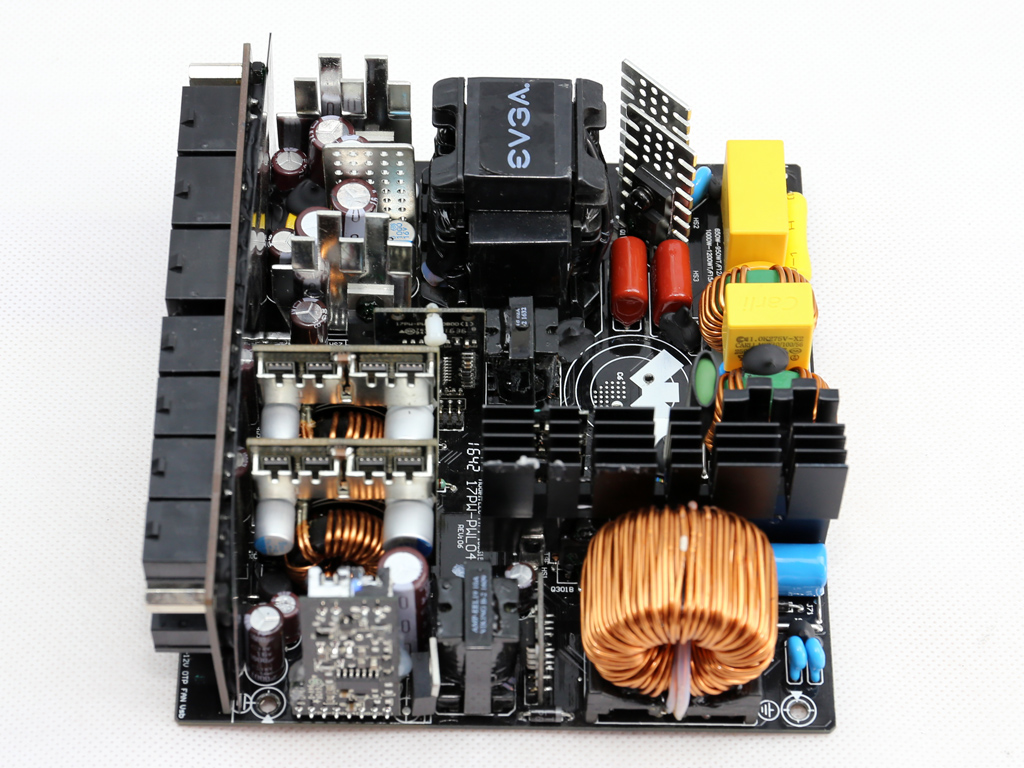
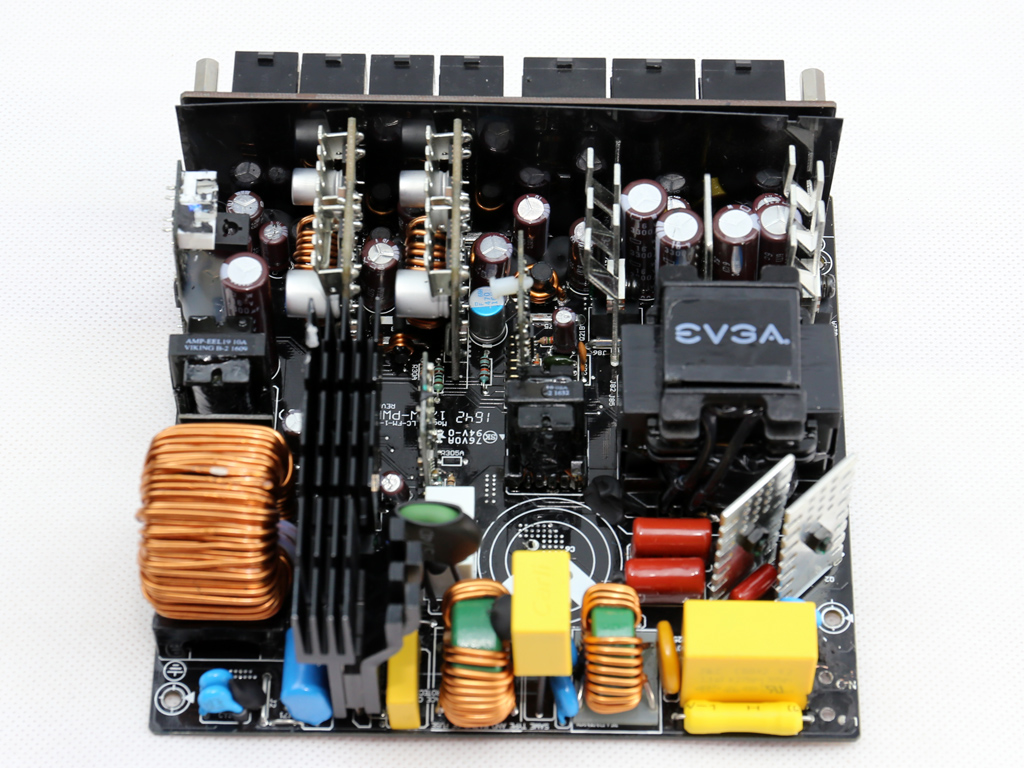
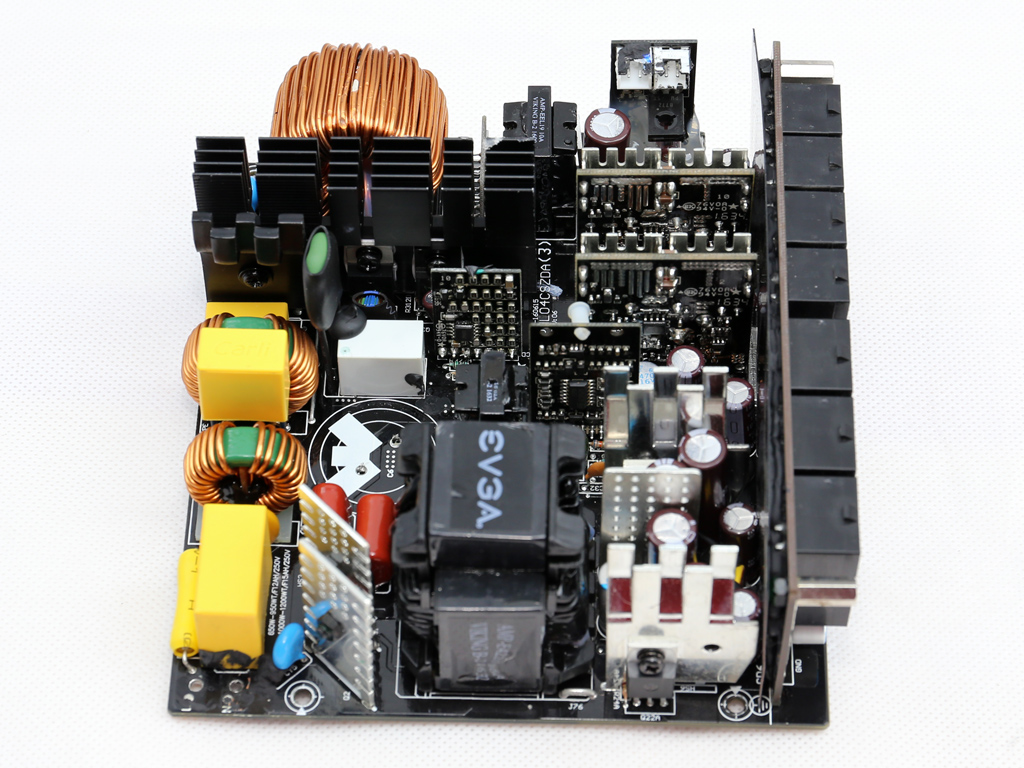
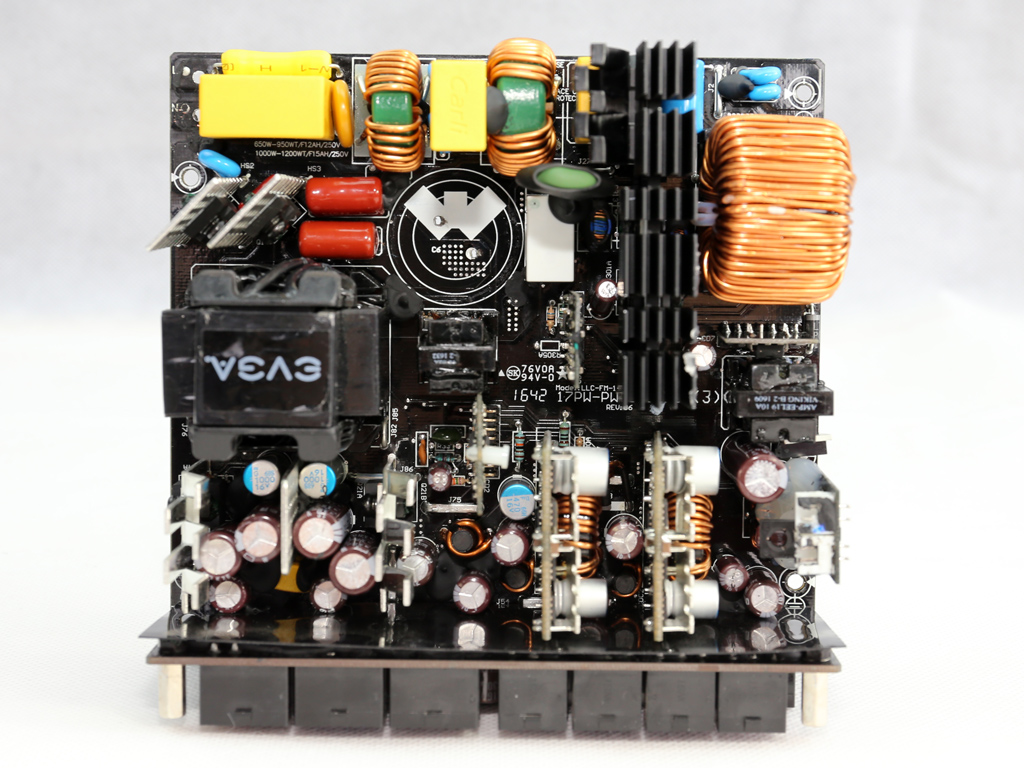
The G3s are based on a fresh Leadex II platform, which Super Flower says offers improved performance compared to the G2's Leadex design. We do see a lot of component changes, including a new resonant controller (SF201T) and a 130mm HDB fan. The primary switcher's topology is a half-bridge, just like the older platform. On the secondary side, only Japanese polymer and electrolytic caps filter the rails.
Similarities between this 850 G3 and the 850 G2 are many, but there are enough major changes to make Super Flower's claims plausible. We'll go ahead and make the comparisons for you, illustrating how the platforms truly differ.

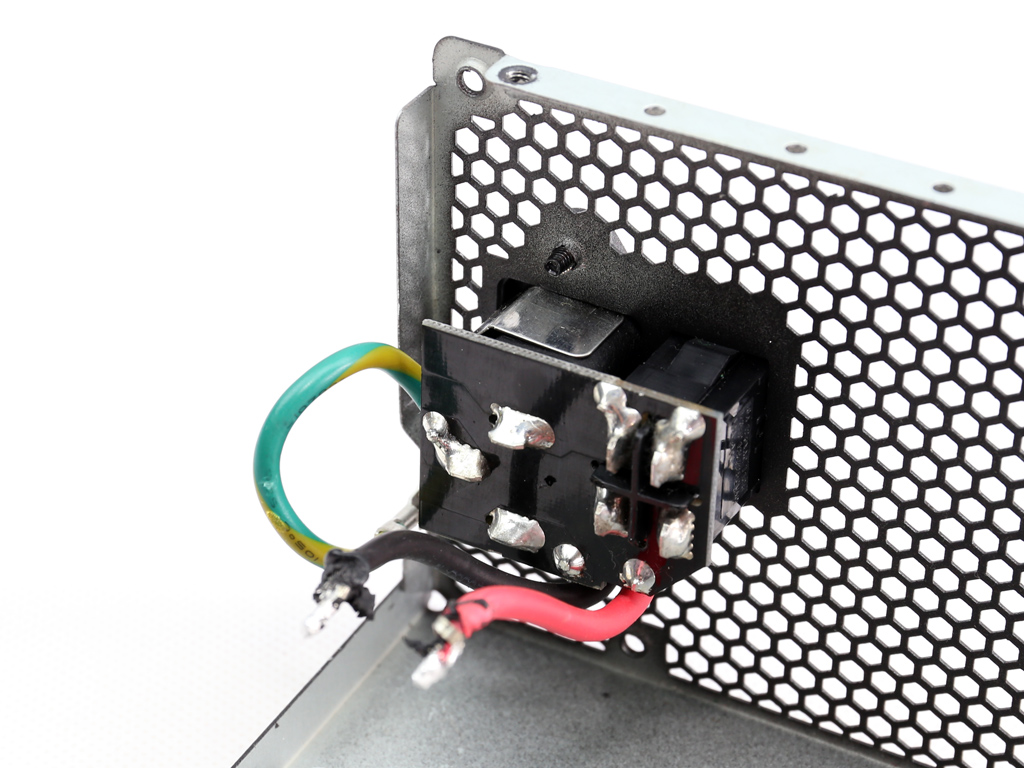
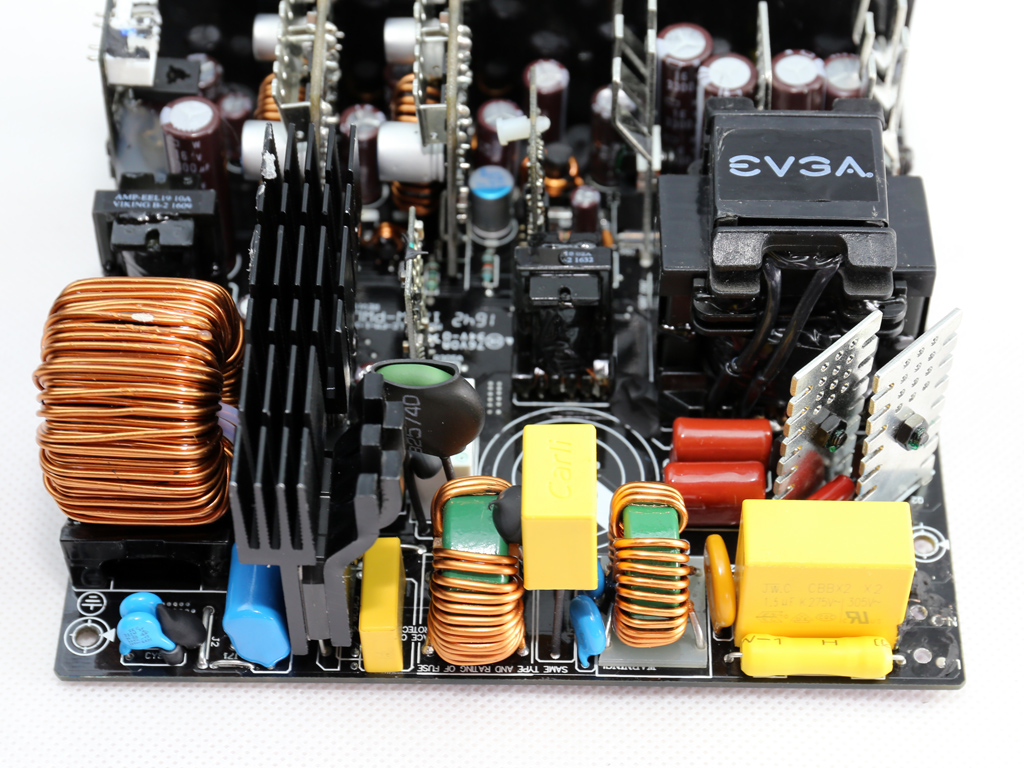
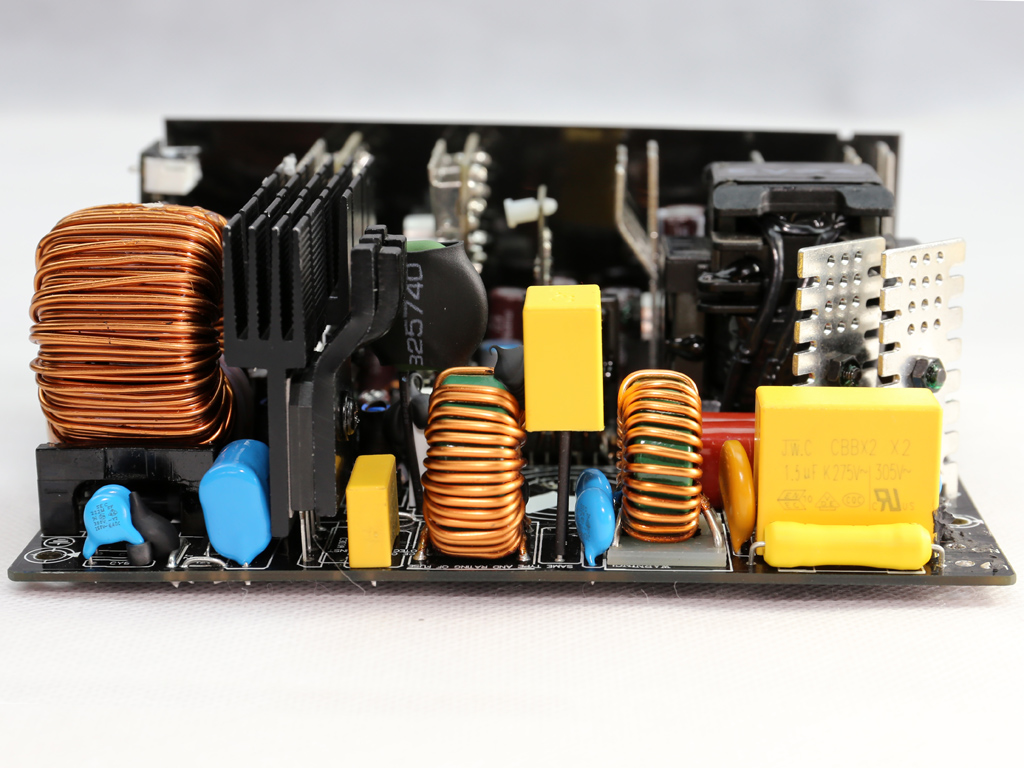
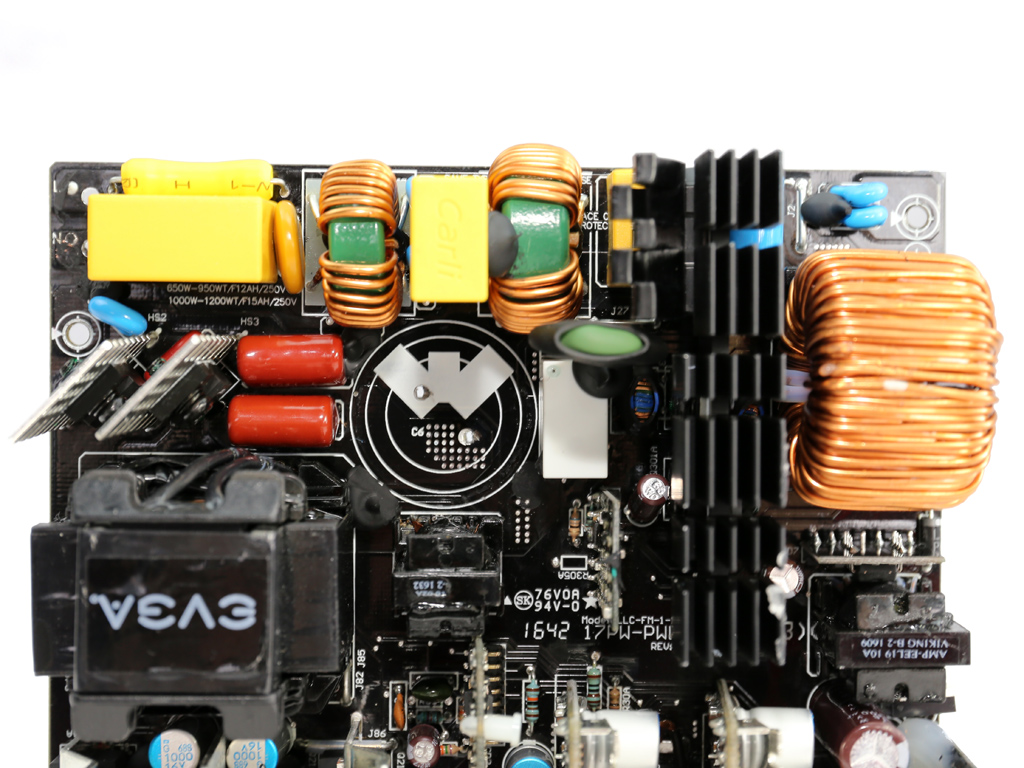
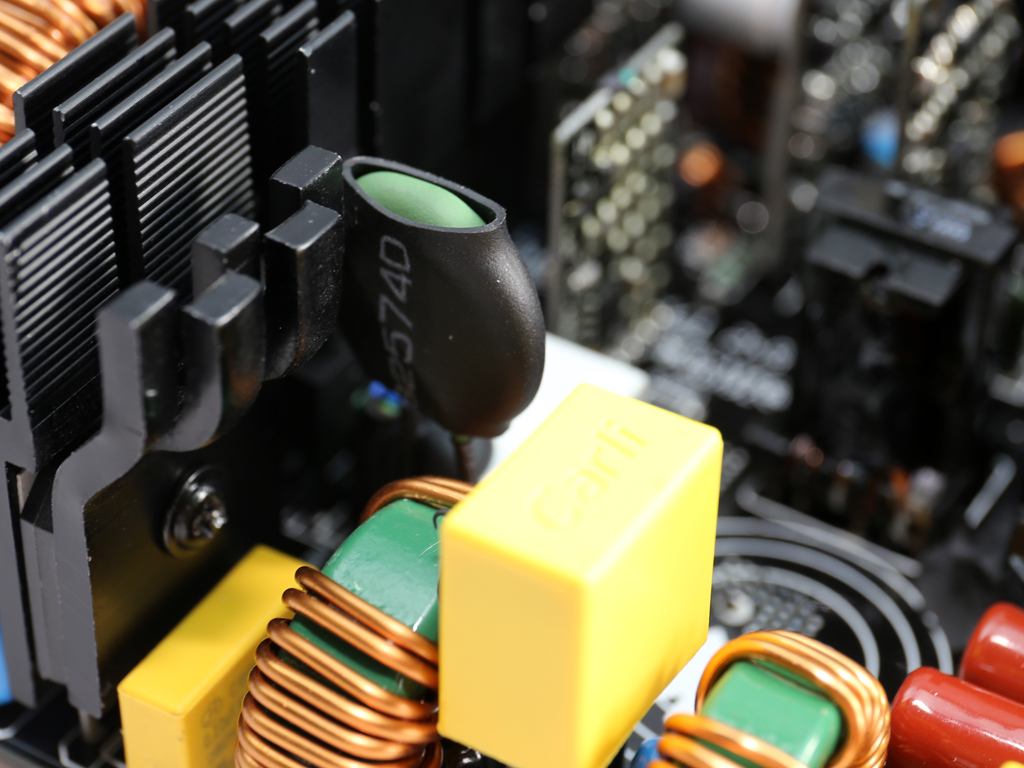
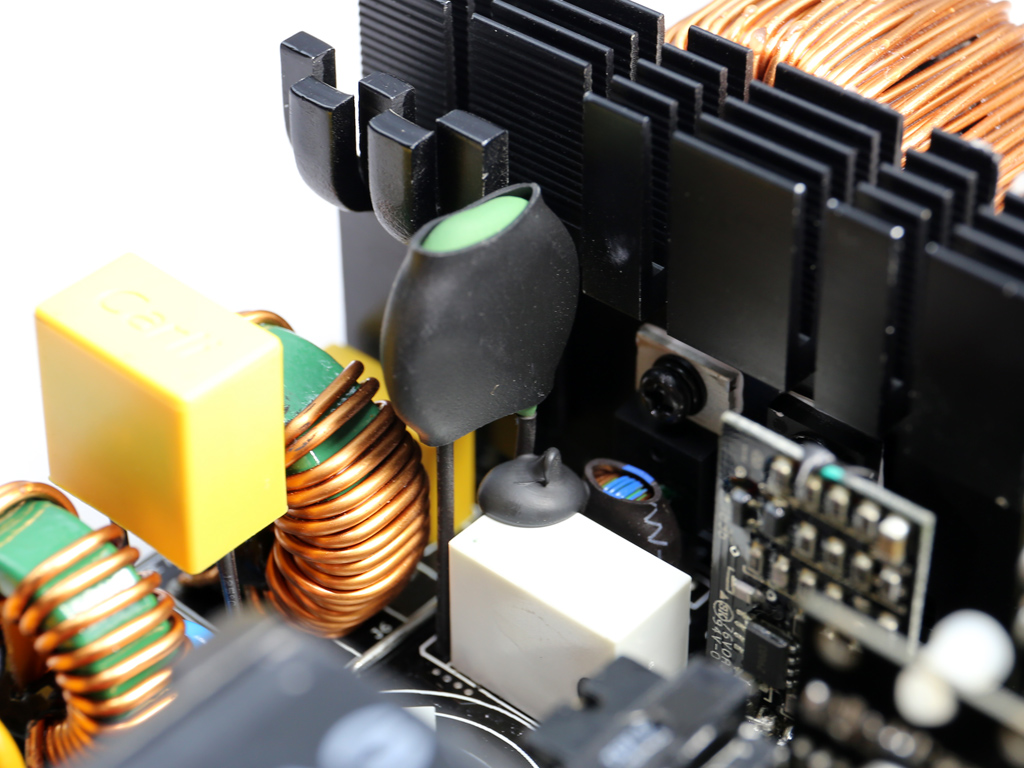
The PCB right behind the AC receptacle and power switch doesn't hold any transient filter parts. Those are all on the main PCB, consisting of three X caps, four Y ones, two CM chokes, and an MOV. There is also an NTC thermistor and bypass relay, which form the inrush current protection circuit. EVGA's SuperNOVA 850 G2 uses the same components in its transient filtering stage, except it has one less X cap.
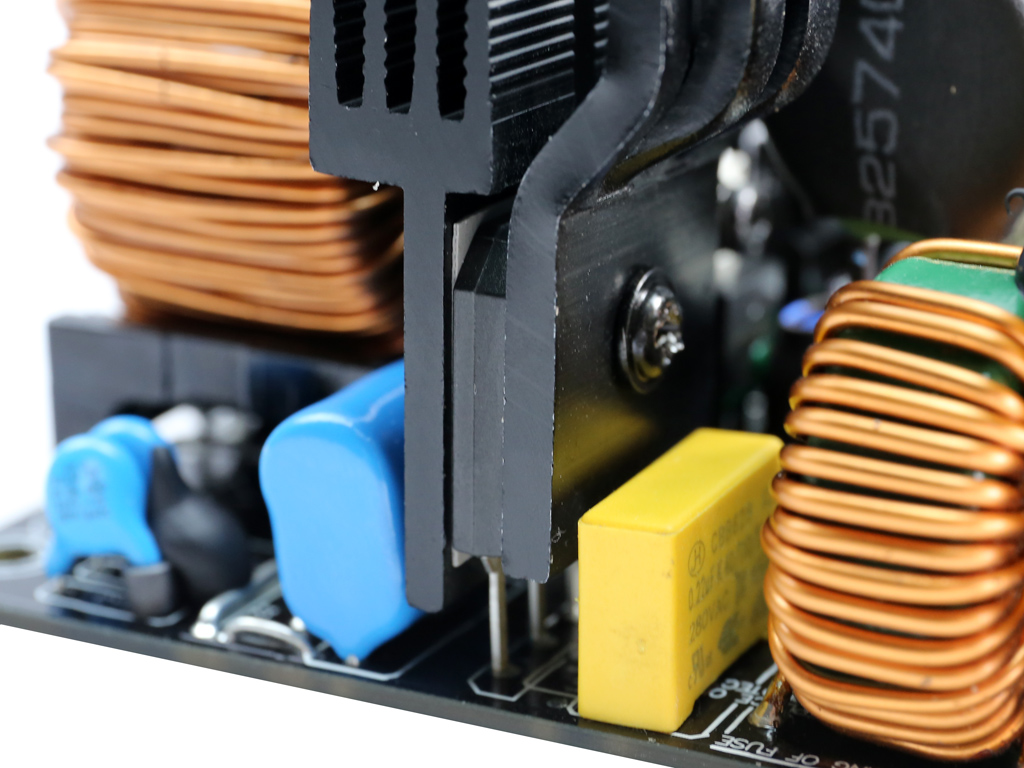

A single bridge rectifier, Shindengen's U30K80R, is cooled by the primary heat sink and a smaller dedicated one. The 850 G2 uses a single bridge rectifier as well, though it's only cooled by the primary/APFC heat sink.
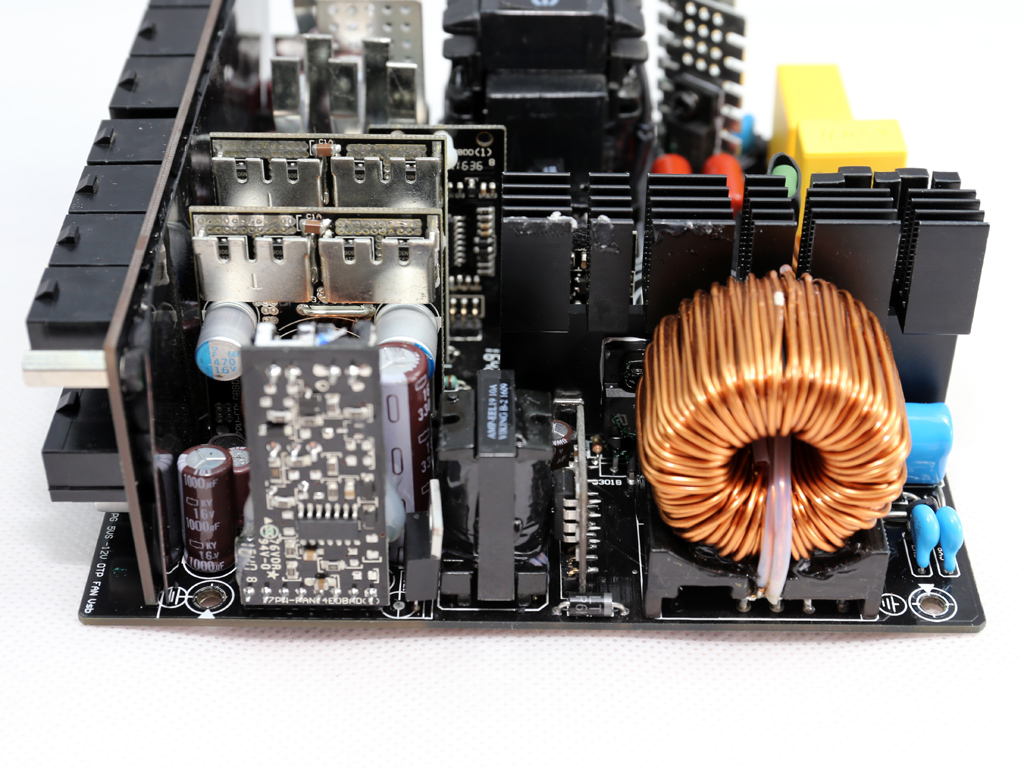
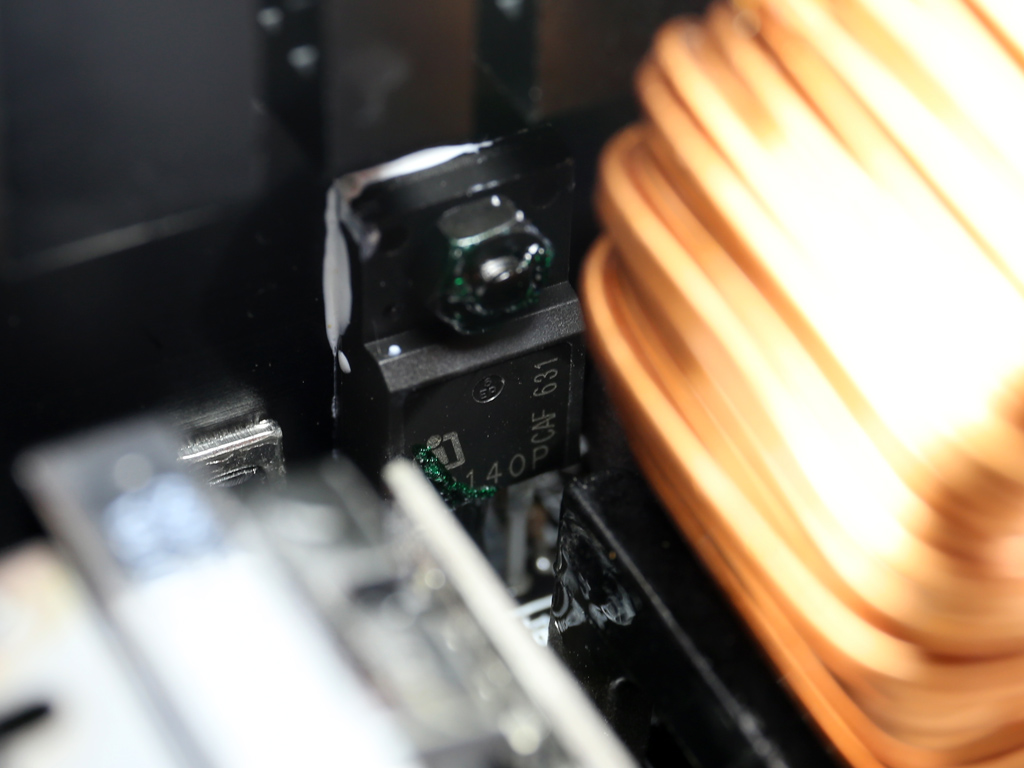
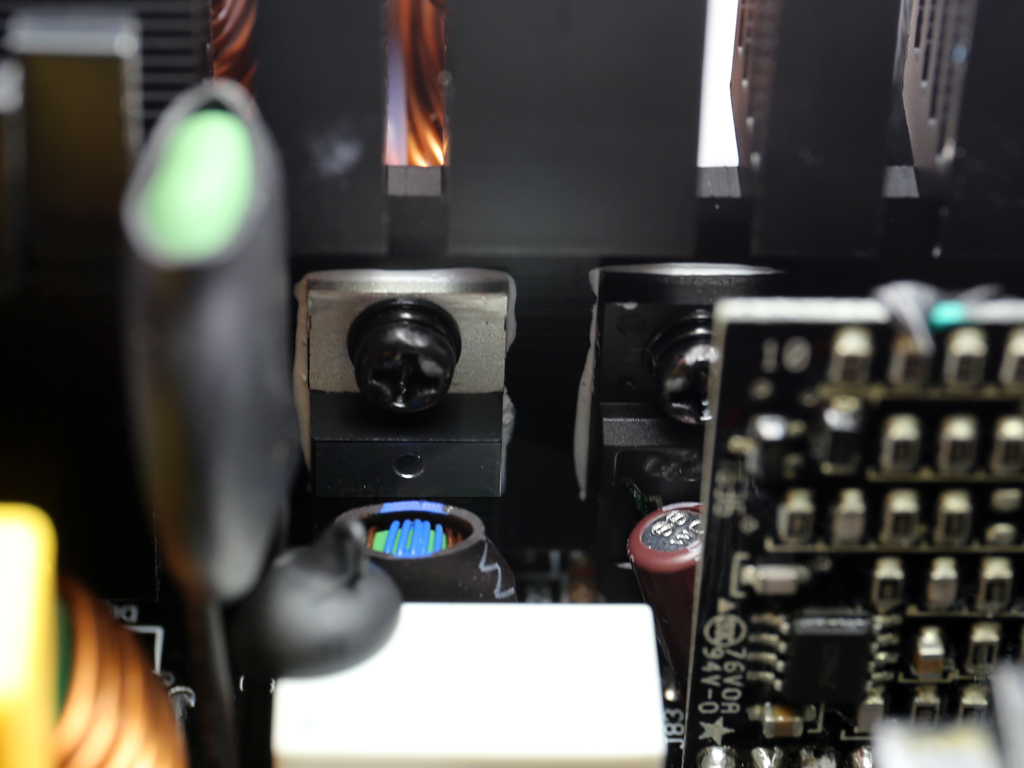
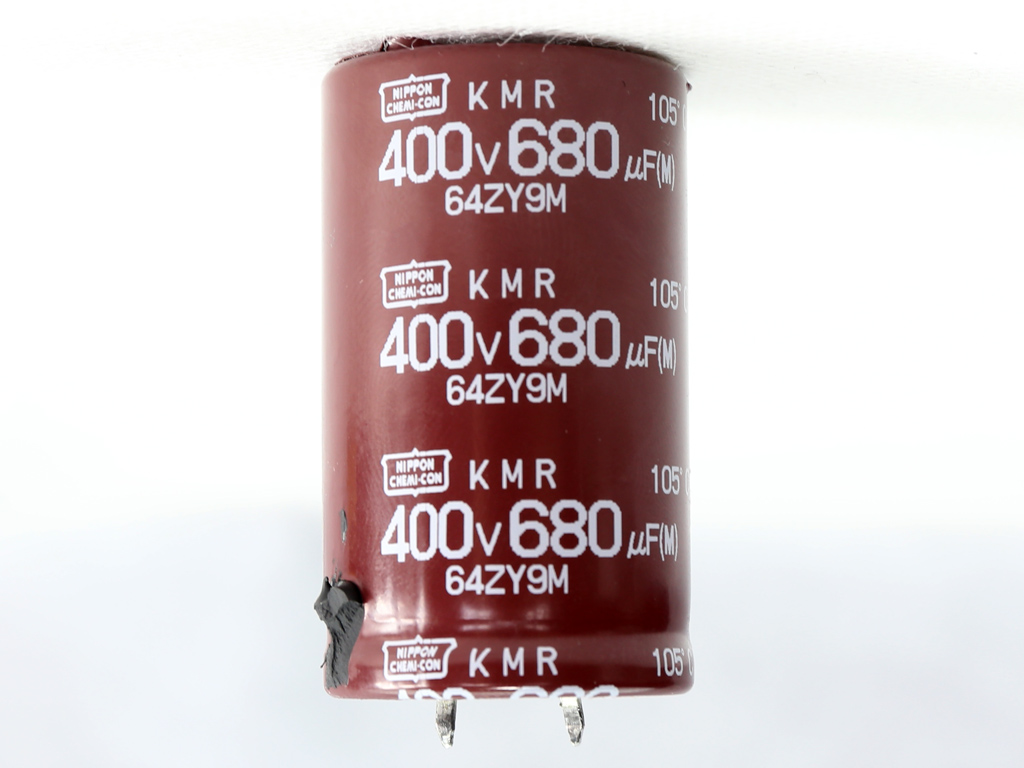
The APFC converter uses two Infineon IPA50R140CP FETs and a single CREE C3D08060A boost diode. In comparison, the 850 G2 uses two Infineon IPP50R140CP FETs and a C3D08065A boost diode. The single bulk cap in the 850 G3 is provided by Chemi-Con (400V, 680uF, 2000h @ 105°C, KMR) and its capacity is on the verge of meeting this model's hold-up time demands. The 850 G2 uses two bulk caps (Chemi-Con, 390µF and 330µF, or 720µF combined, 2000h @ 105°C, KMR) thanks to its larger PCB.
The APFC controller in the 850 G2 is an NCP1653A IC, while in the 850 G3 it's a proprietary IC with the model number SF29603 made exclusively for Super Flower.
Get Tom's Hardware's best news and in-depth reviews, straight to your inbox.
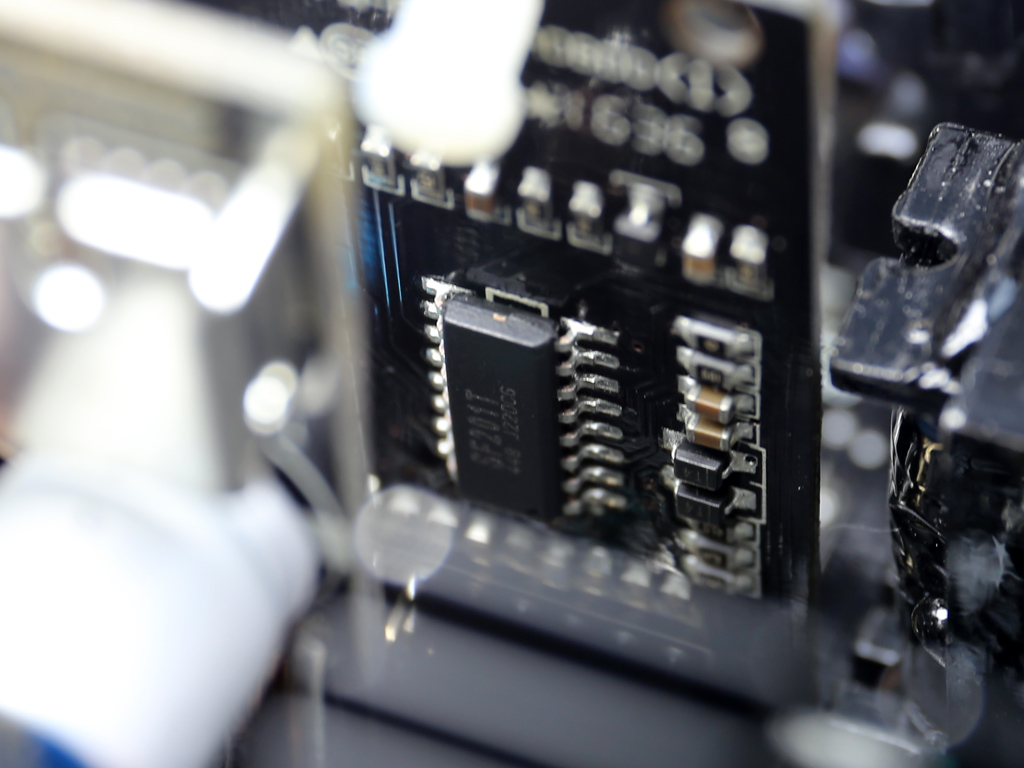
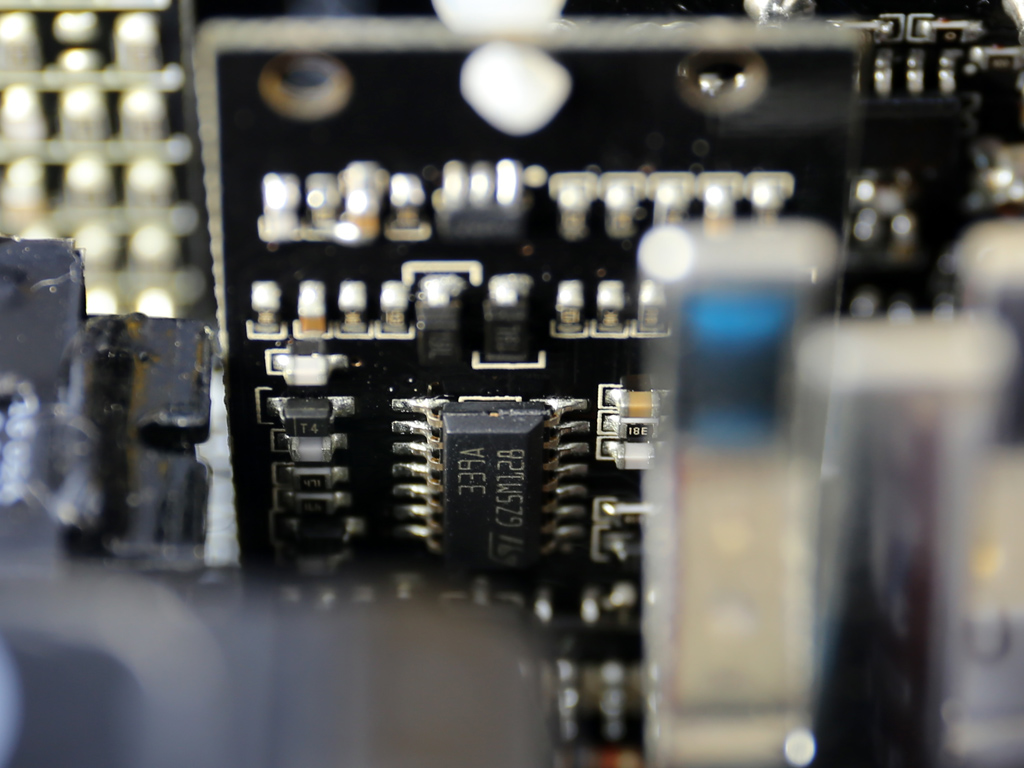
The resonant controller is a SF201T IC. EVGA uses a AA9013 IC in the previous-gen version. On the same board that hosts the SF201T, we also find an LM339A dual op-amp, which is probably utilized by the PSU's protection features.
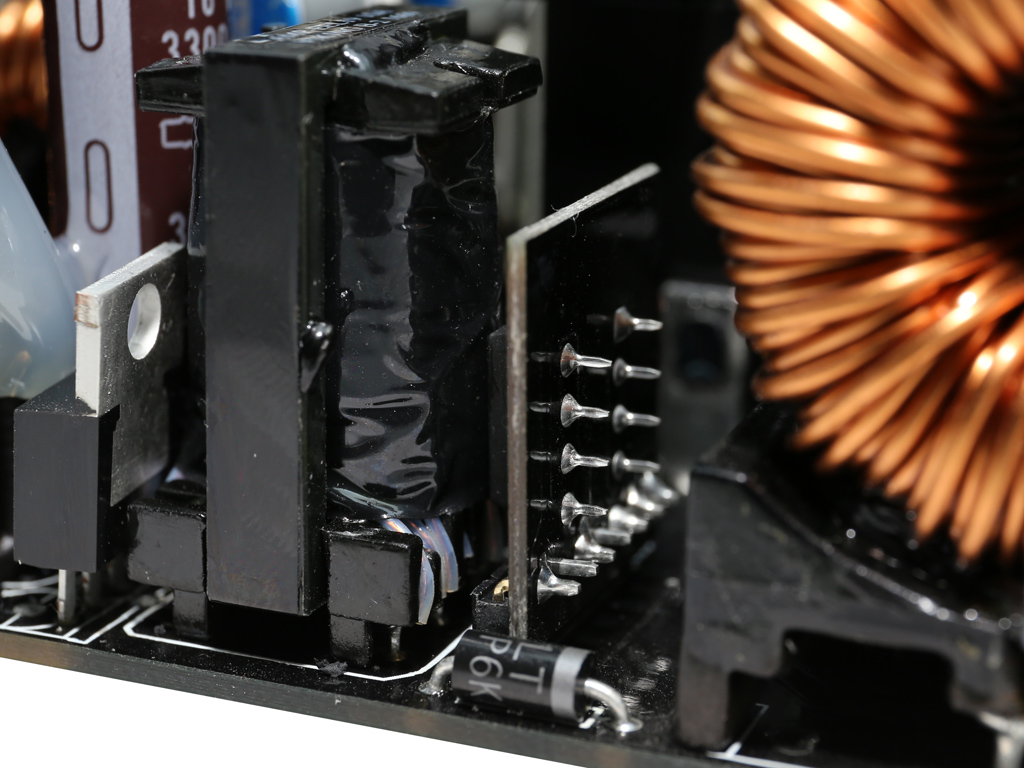
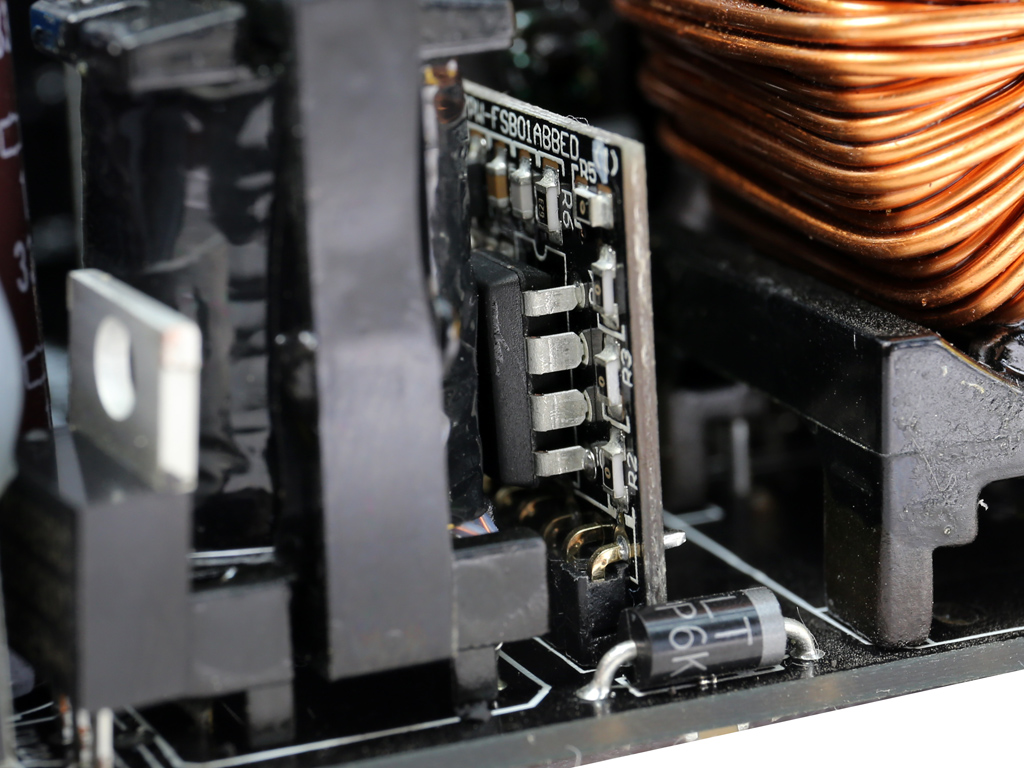
In EVGA's 850 G2, the standby PWM controller is a Fairchild BD6AG IC. In the 850 G3, this task is given to an IC with model number 29604. Unfortunately, we don't have any information about Super Flower's custom-made controllers.
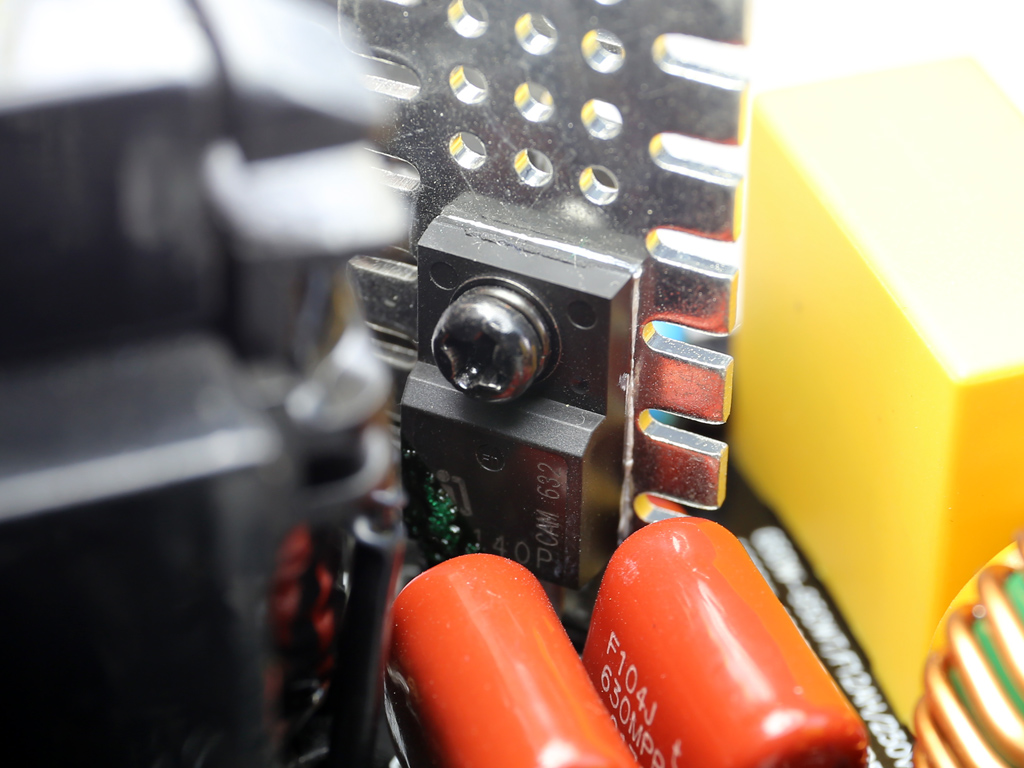
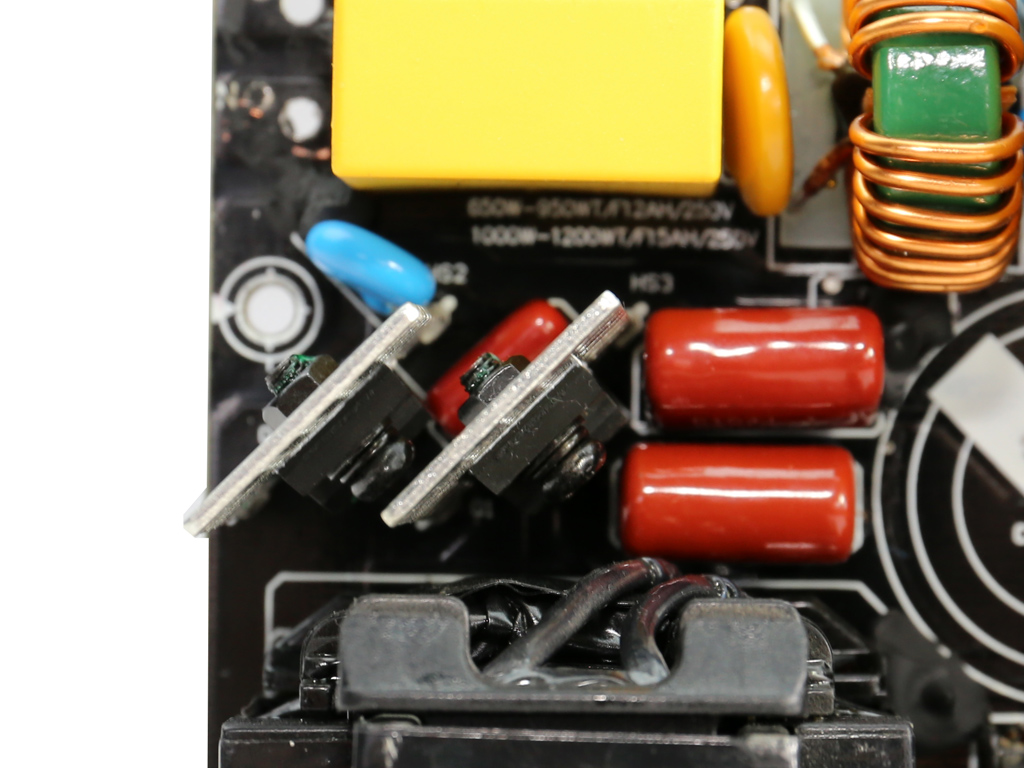
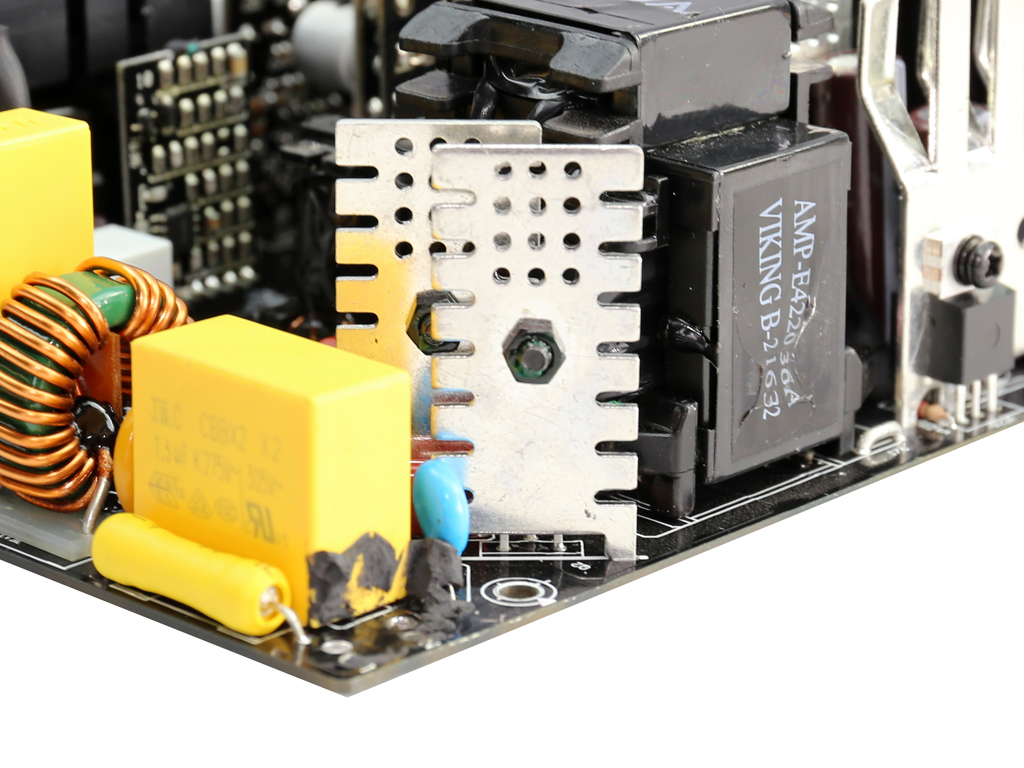
The 850 G3's primary FETs are two Infineon IPA50R140CPs; the previous model utilized two Infineon IPP50R140CPs. In both cases the topology is half-bridge, Super Flower's favorite.
Four Infineon IPP023N04N G FETs regulate the 850 G3's +12V rail. In the 850 G2, six Infineon IPP041N04N G FETs are used for the same purpose.
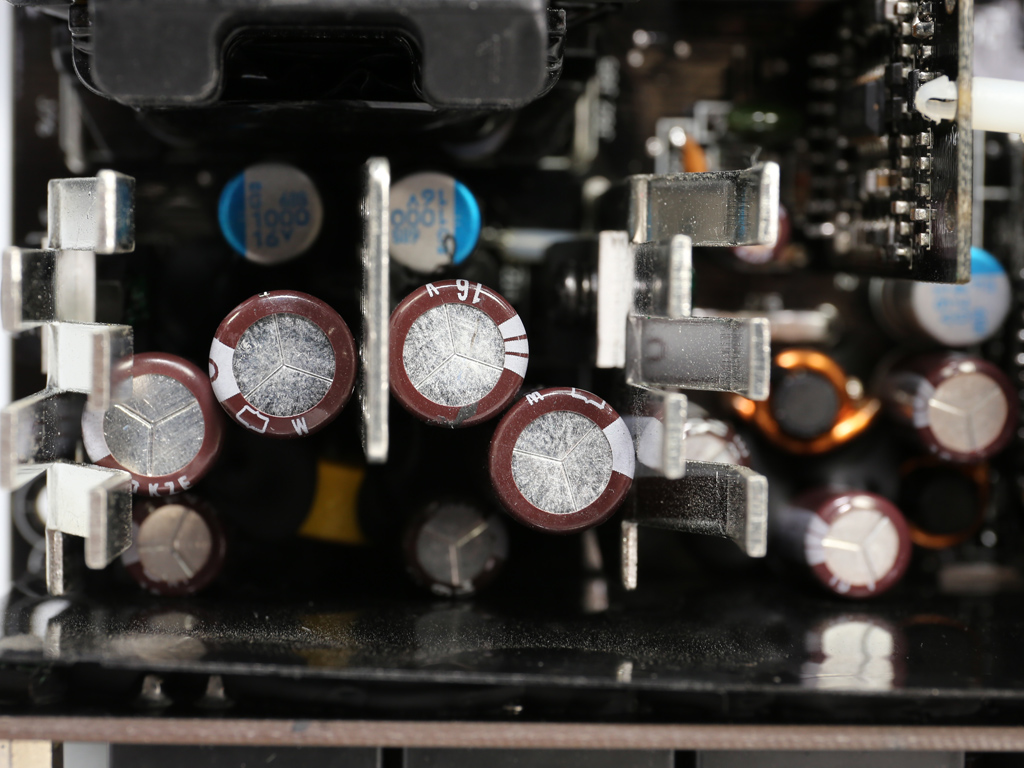
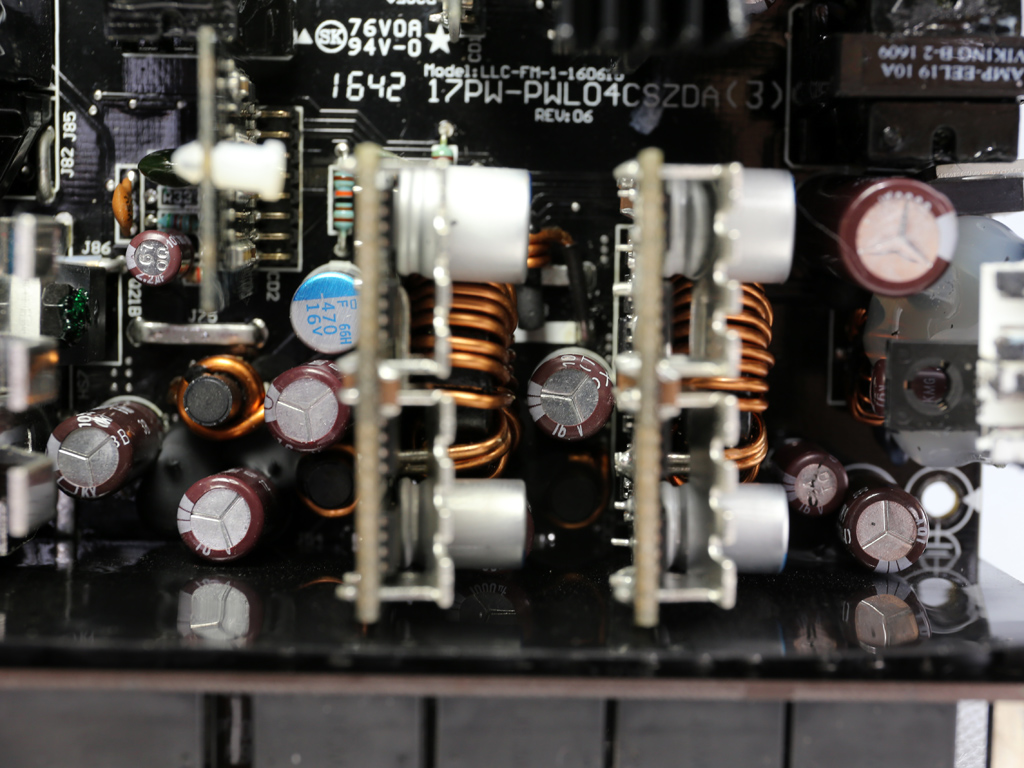
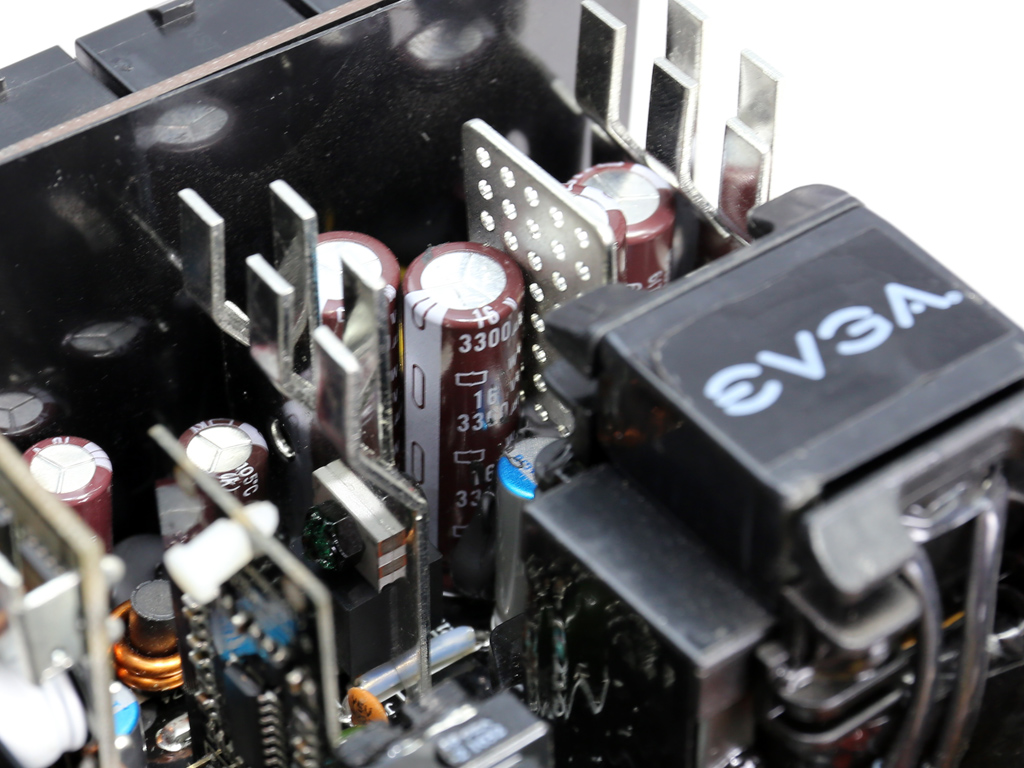
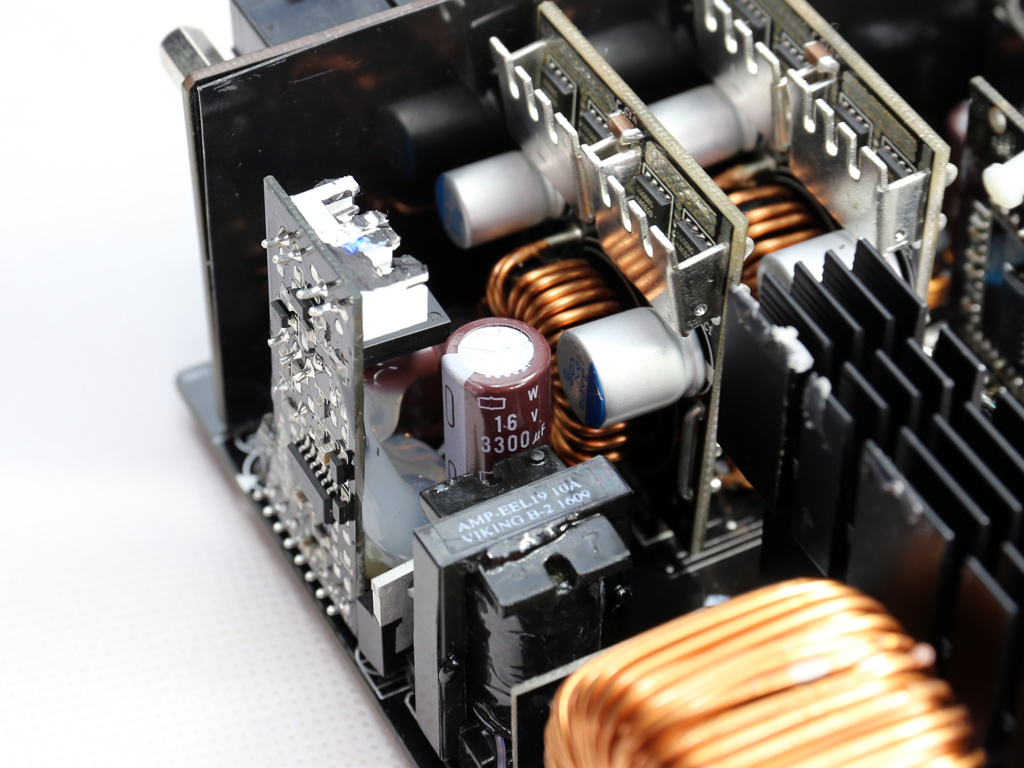
The filtering caps are provided by Chemi-Con and belong to the KZE, W, and higher-quality KY lines. They're all are rated at 105°C. Besides the electrolytic caps, we also find polymer ones that are more resilient to heat since they don't use any liquid electrolyte. The 850 G2 also uses KZE and KY capacitors, along with several polymer ones sourced from Chemi-Con.
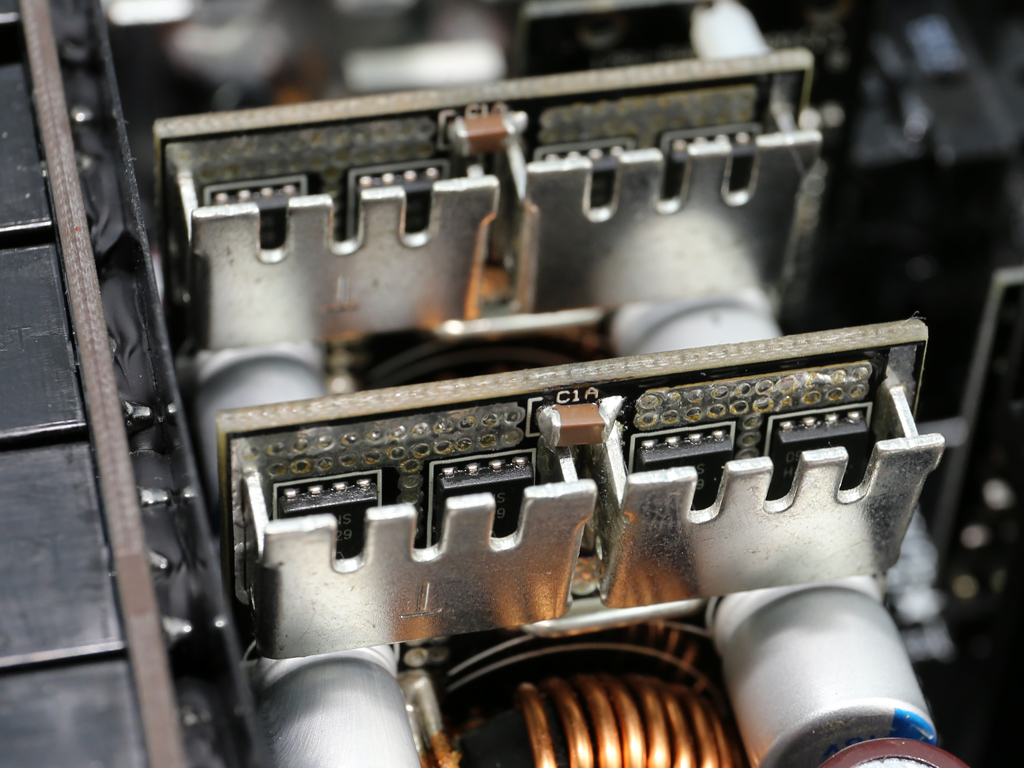
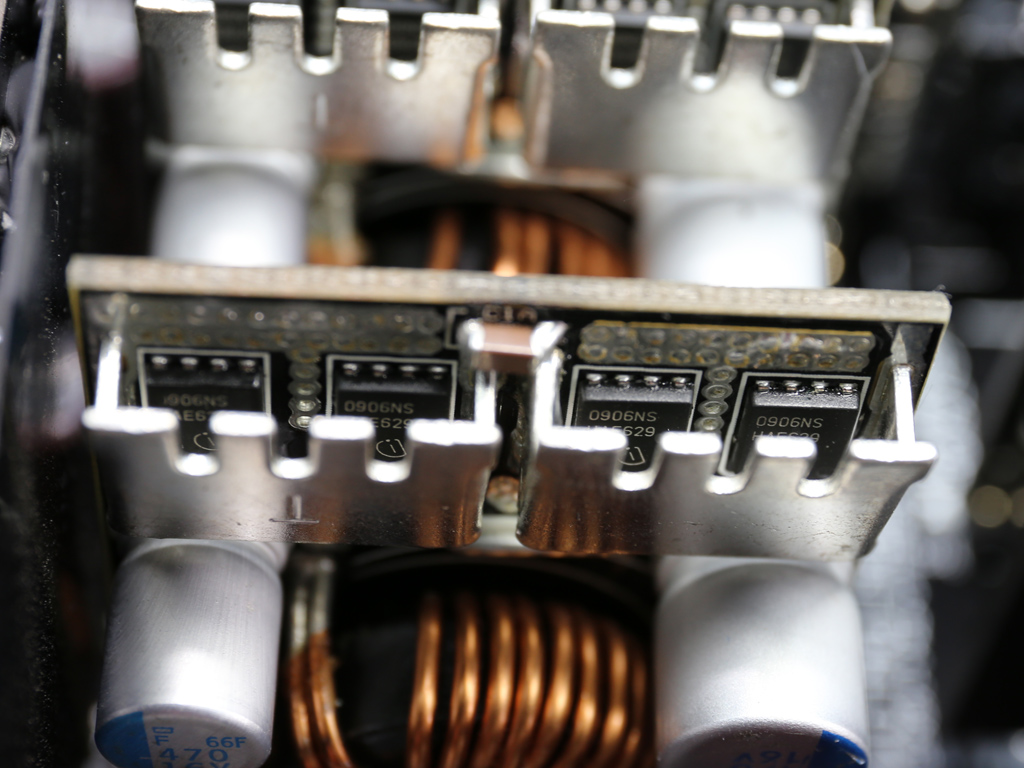
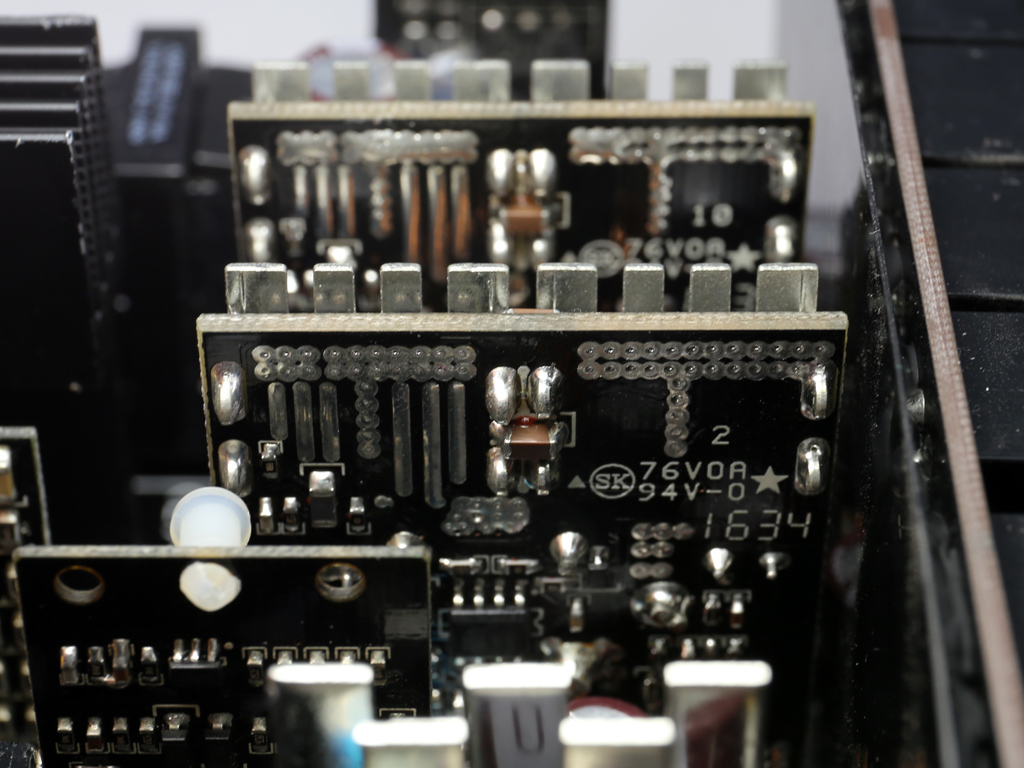
A couple of vertical boards host the regulation modules that handle the minor rails. In total, eight Infineon BSC0906NS are used by both modules, along with two PWM controllers (On Semiconductor NCP1587A). The 850 G2 also utilizes eight FETs in this section.
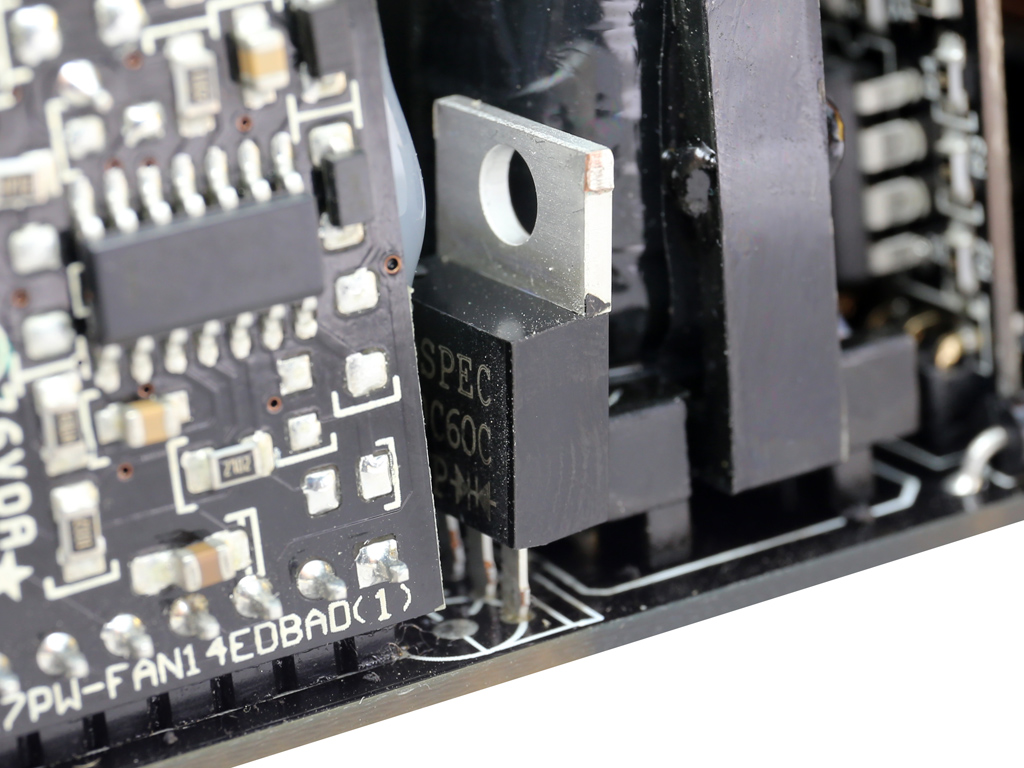
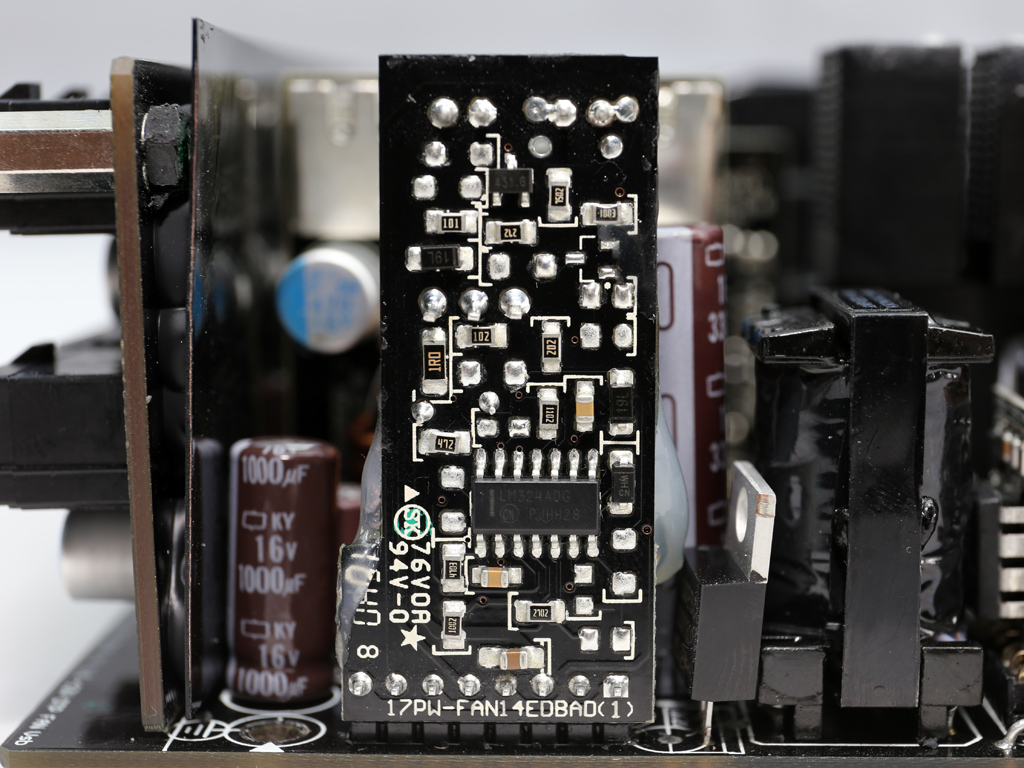
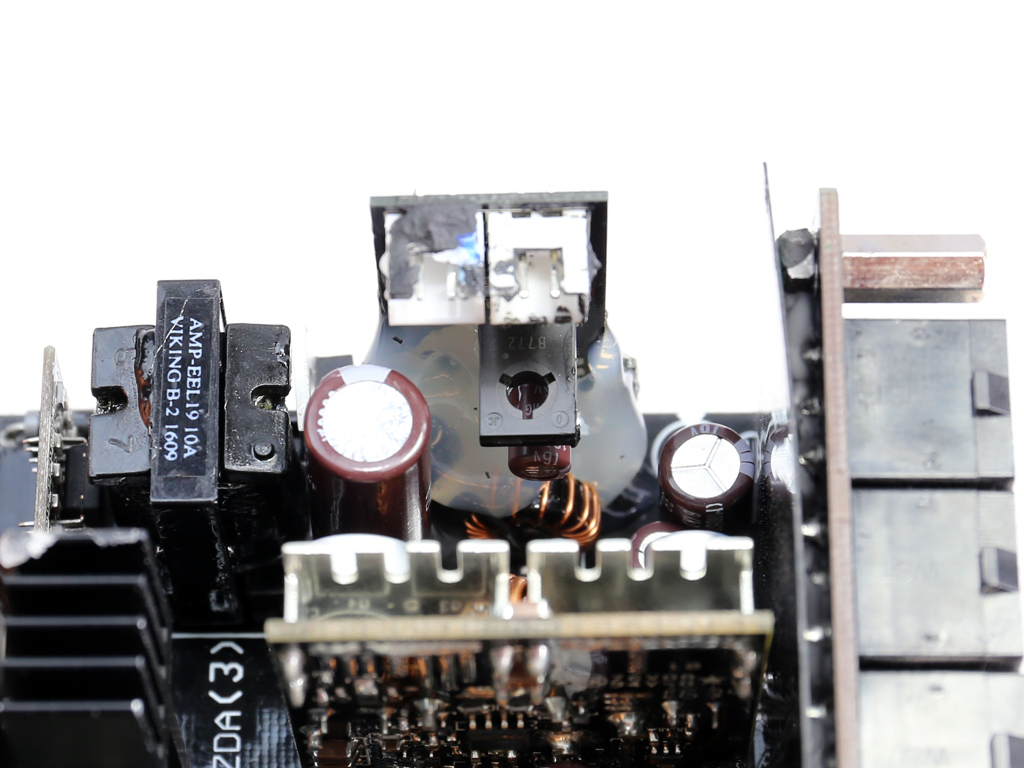
In both the 850 G3 and G2, the 5VSB rail is rectified by a Mospec S10C60C SBR (Schottky Barrier Rectifier). Right next to it is the fan control board, on which we spot an LM324ADC.
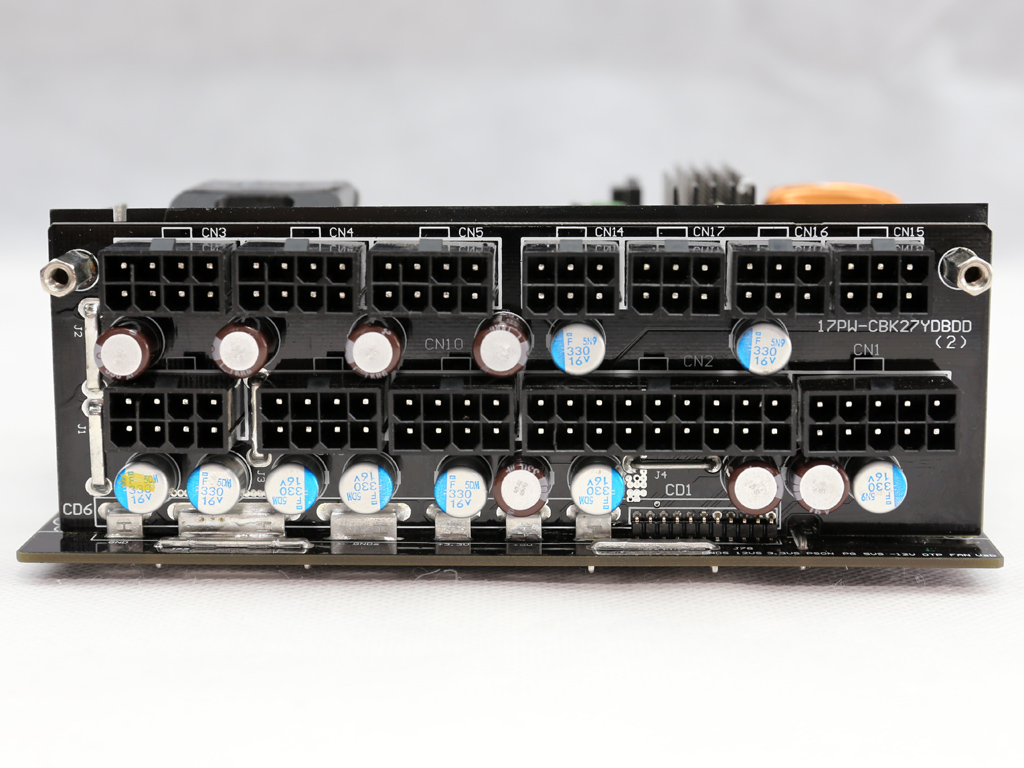
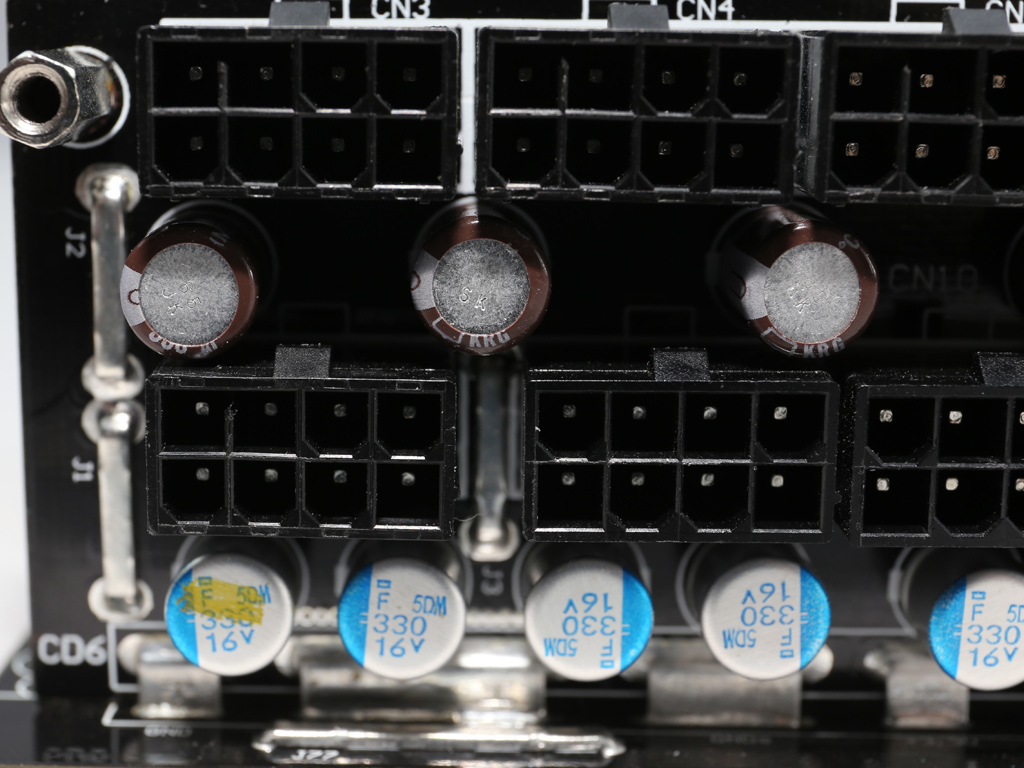
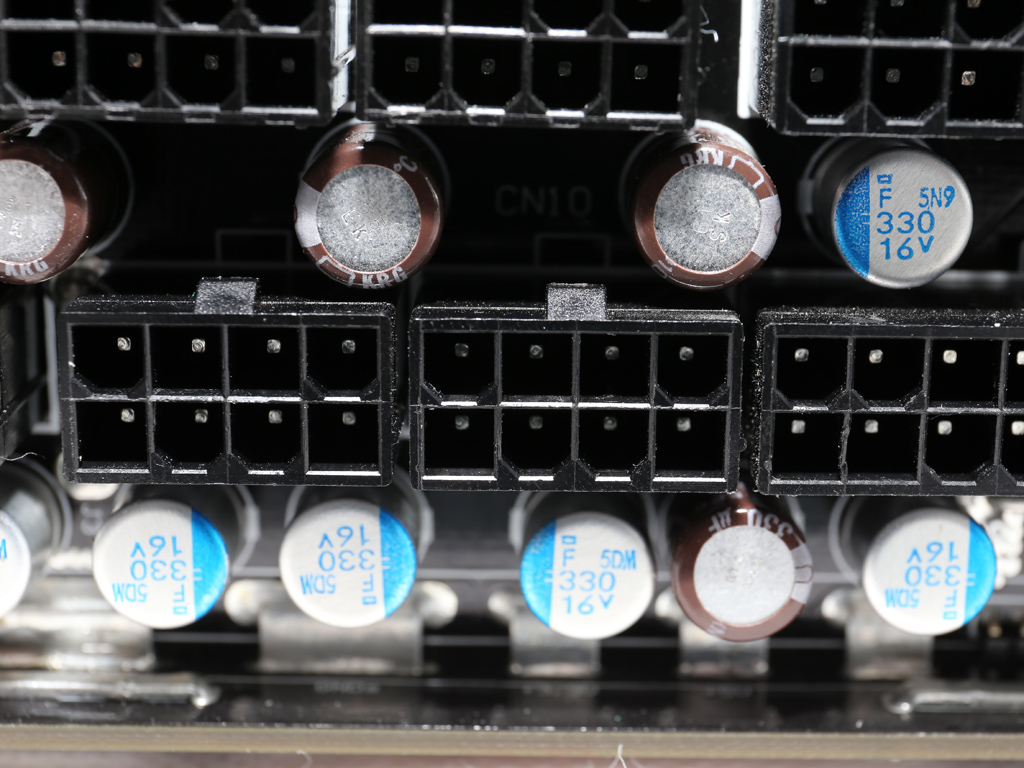
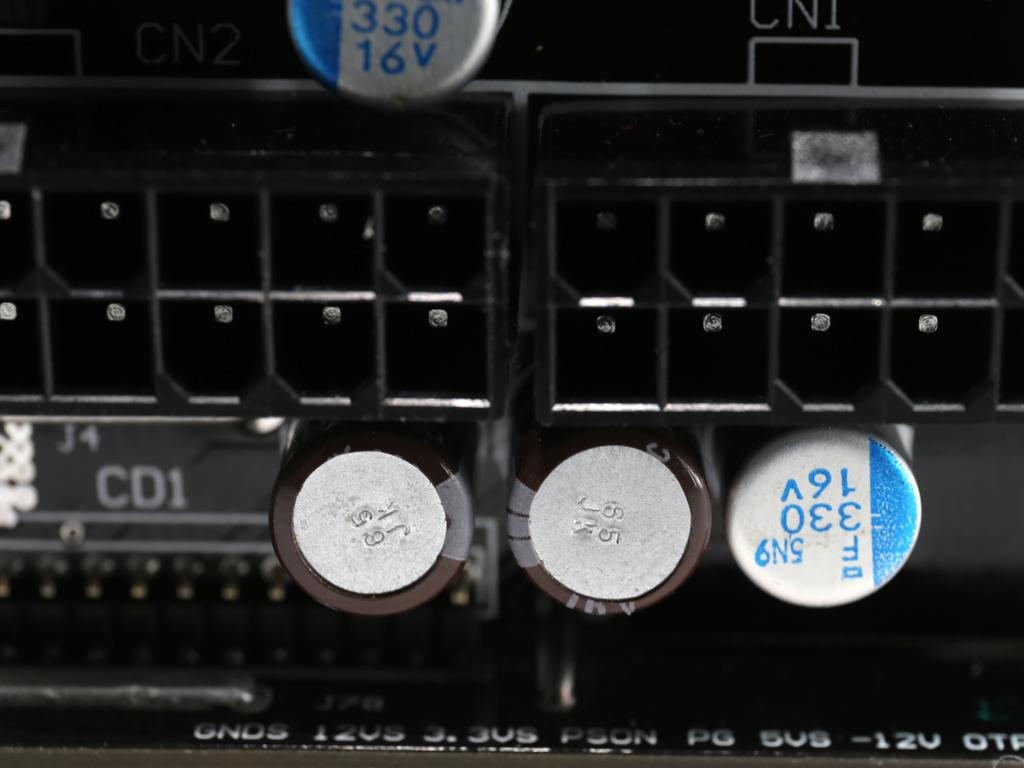
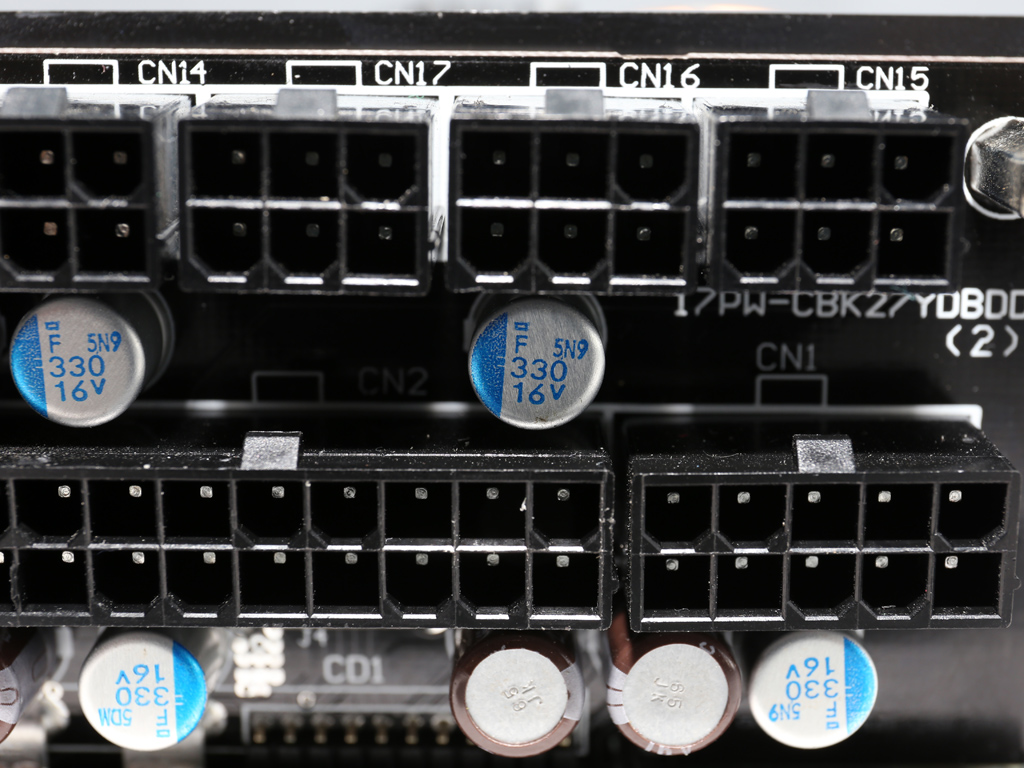
On the front of the modular board, six small electrolytic caps (105°C, KRG) and nine polymer ones provide an extra layer of ripple filtering. The 850 G2 uses 10 KRGs on the same PCB, along with six polymer caps. So, in the newer design, Super Flower is using more polymer caps, which is a good thing since Chemi-Con's KRG caps don't have a long lifetime (only 1000 hours).
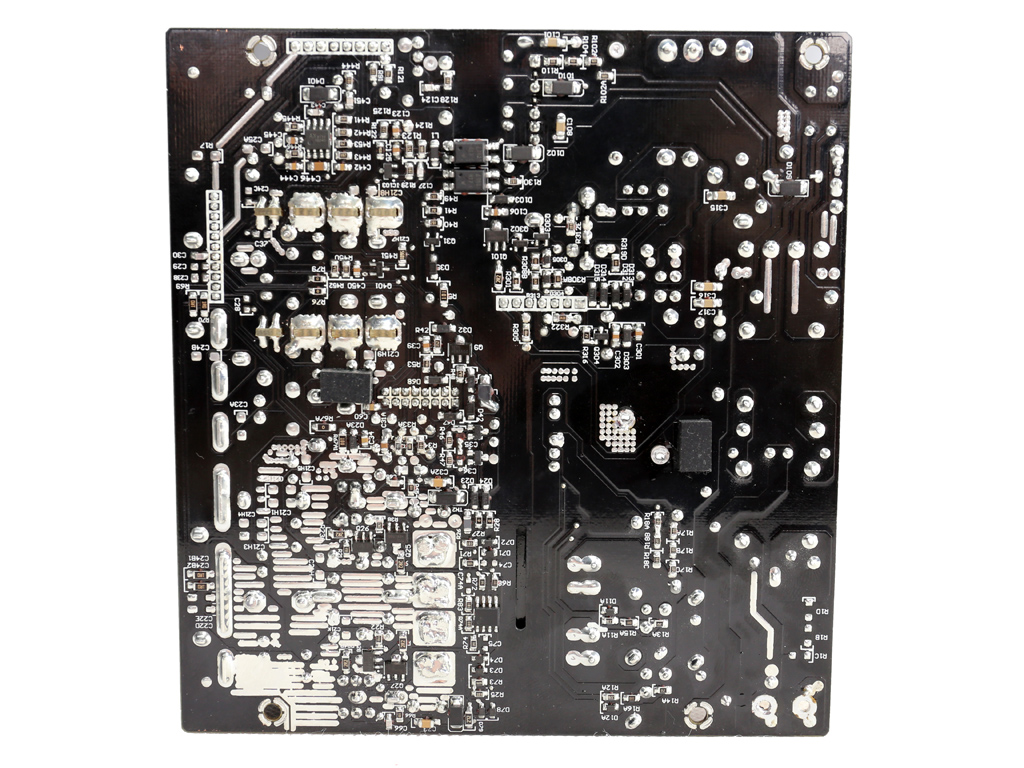
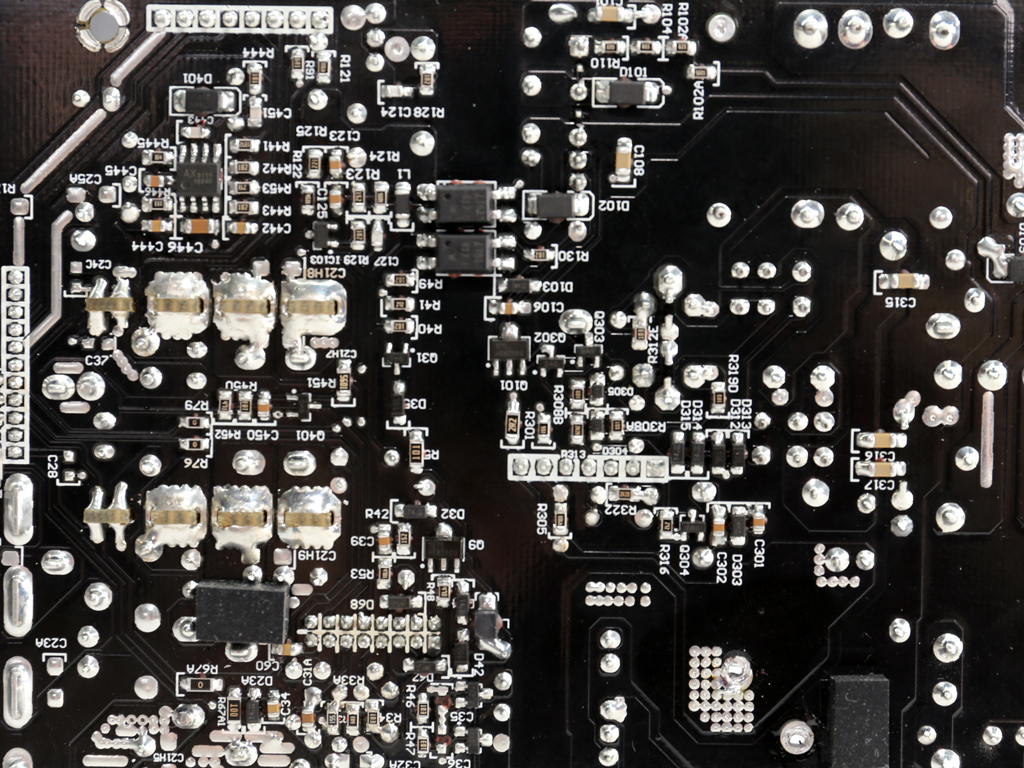
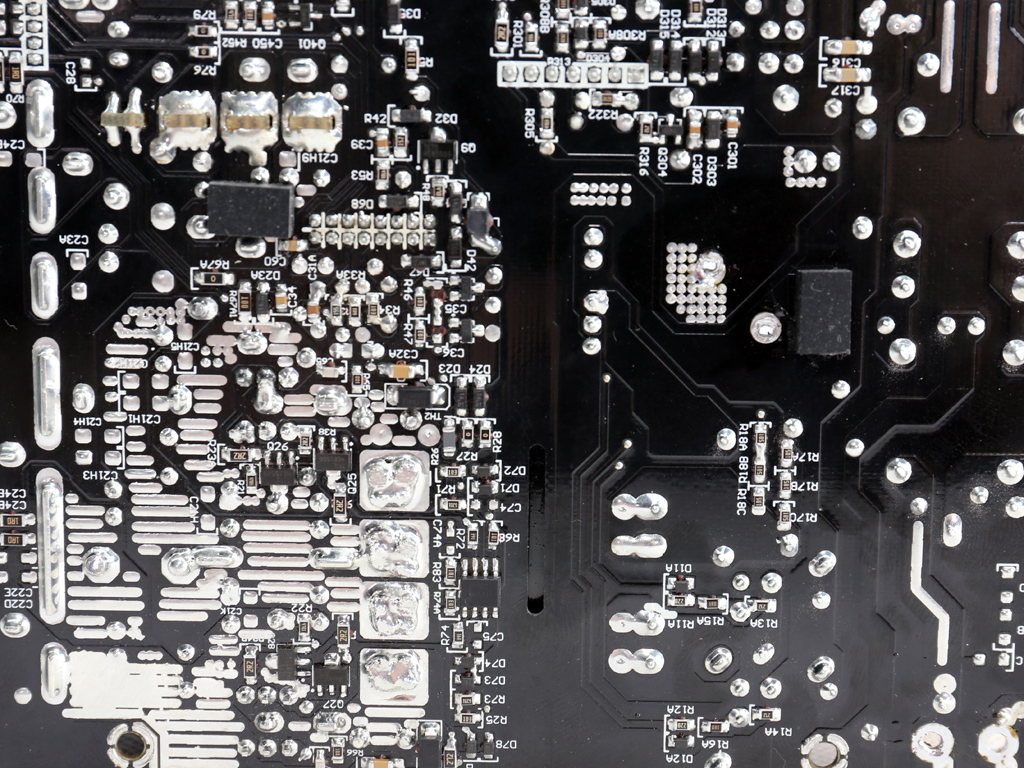
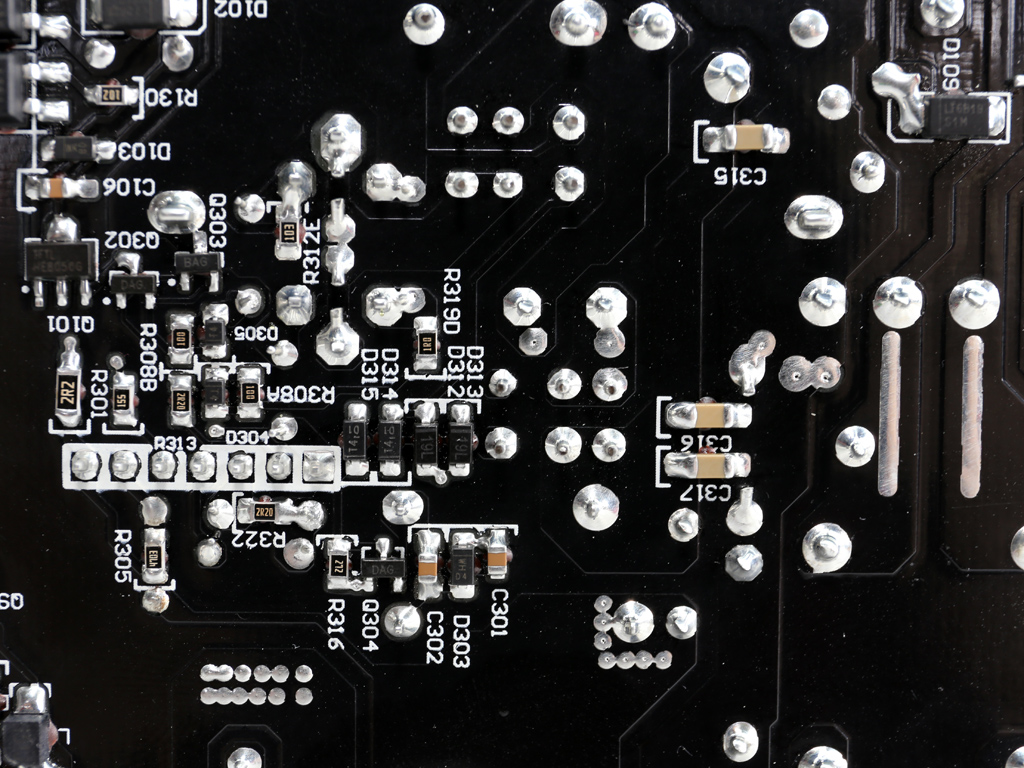
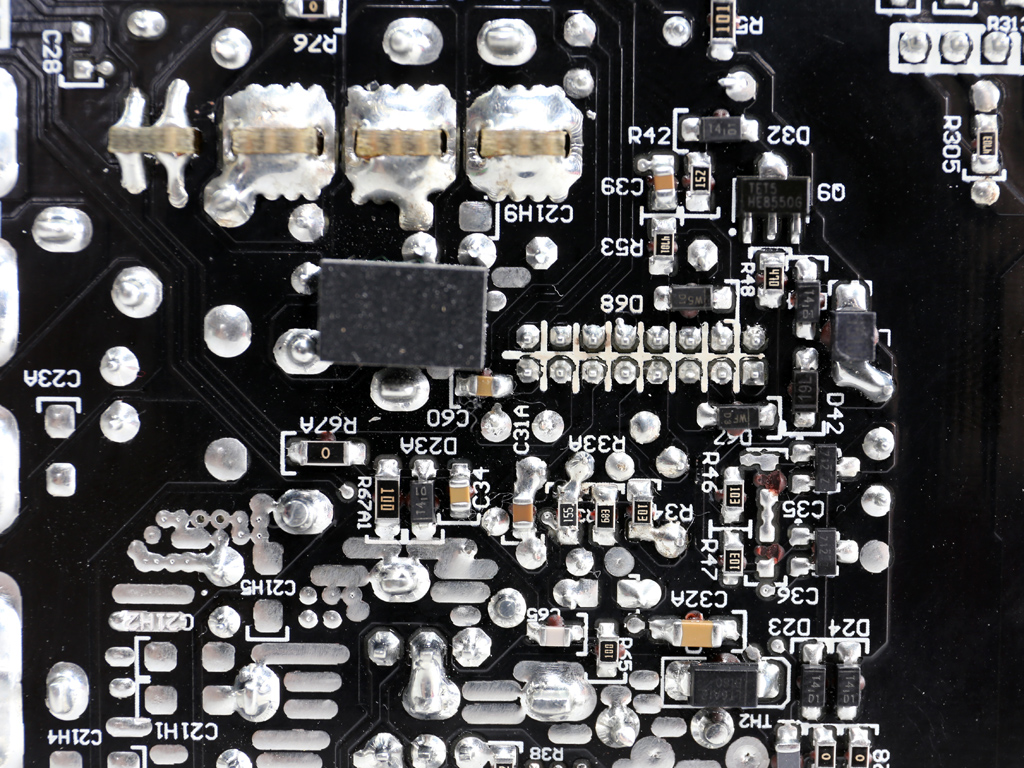
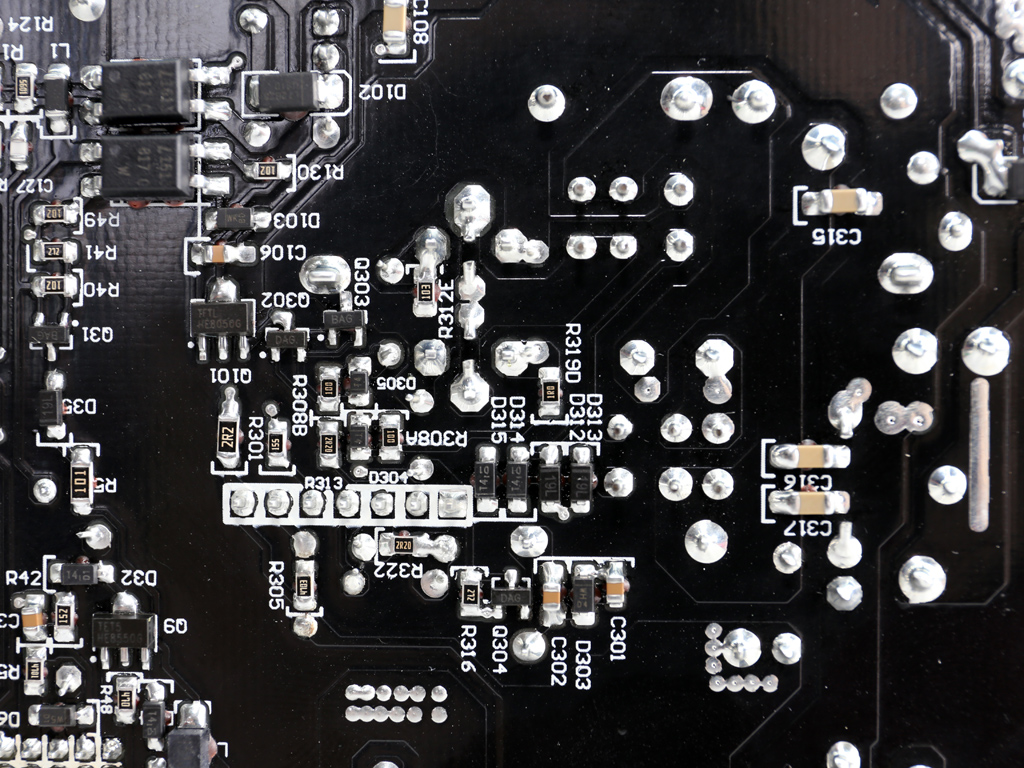
We don't have any complaints about the G3's soldering quality, and we didn't have any about the older G2 either. Super Flower has improved its soldering quality a lot, and it now rivals the top OEMs. We also have to mention, however, that not all Super Flower-designed PSUs are made in the company's factory, since it cannot keep up with demand.
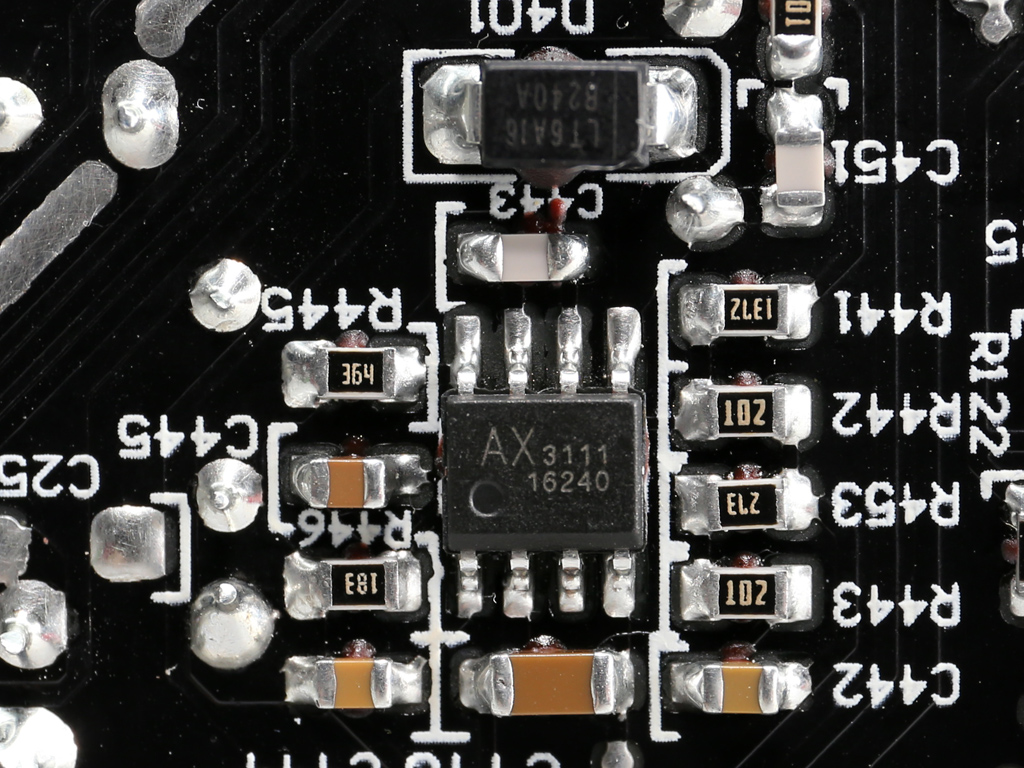

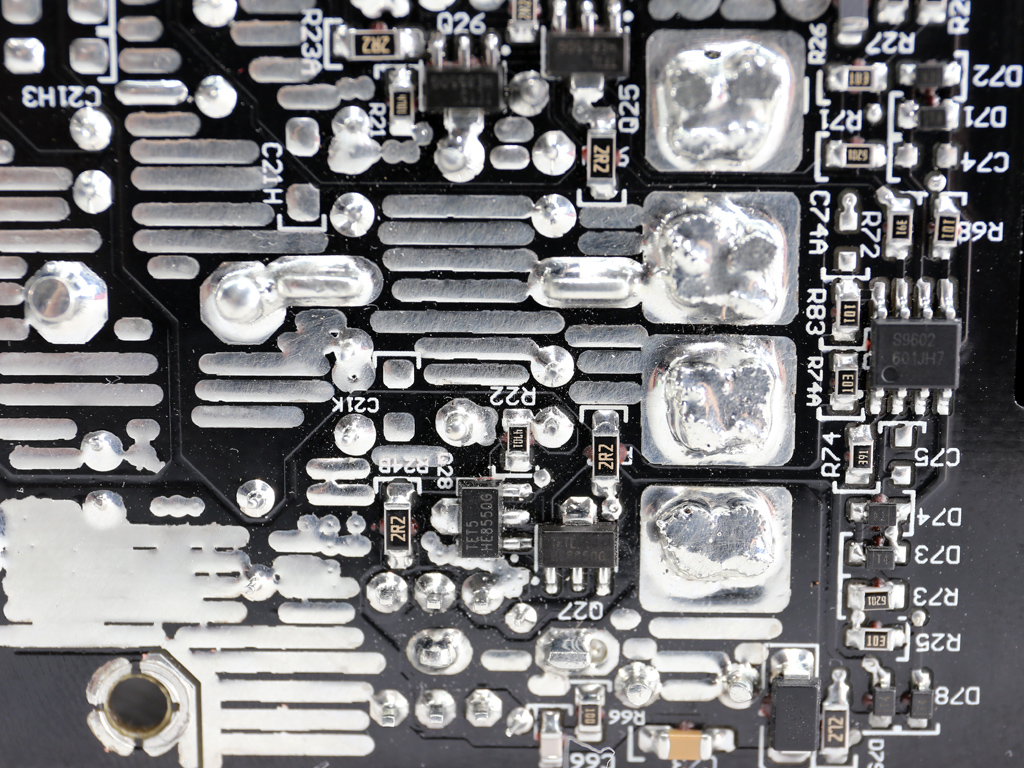
There are some interesting ICs on the PCB's solder side. We spot an AX3111 step-down converter that seems to be used by the fan control circuit, along with an S9602 IC. We also find several UTC HE8550Gs and HE8050Gs, which are low-voltage, high-current small signal PNP transistors.
One of the G3's key changes is its 130mm HDB fan with a model number H1282412H. Unfortunately, the fan (12V, 0.35A, 2150 RPM) is controlled by an aggressive profile, so don't expect it to be quiet under taxing loads. Given this PSU's high efficiency, Super Flower could have used a more relaxed curve. On the bright side, the G3's profile is more granular. The G2s only had four or five different speeds, resulting in major deviations between them.
Current page: A Look Inside And Component Analysis
Prev Page Packaging, Contents, Exterior, And Cabling Next Page Load Regulation, Hold-Up Time, And Inrush Current
Aris Mpitziopoulos is a contributing editor at Tom's Hardware, covering PSUs.
-
envy14tpe Made by Super Flower? Love the quality SF produces. Can't wait to buy my new Leadex II.Reply -
powernod For those looking for an "80+ Gold efficient PSU", probably they won't have to look elsewhere. LeadexII seems amazing platform!!Reply -
BugariaM Based on the information from EVGA siteReply
Such an aggressive fan curve is only made on 1000W and 850W units of the G3 series
550W, 650W and 750W - have a much smoother relaxed curve
I'm curious, what is the fan curve for the 850W unit when the ECO mode is off? It is possible that in this mode it will be much quieter at normal load... -
waylo Dangit. Just bought this yesterday, focusing on a quiet PSU, deciding on this over the G2 or P2 version. I know the quality will be there, but disappointed in the noise levels.Reply -
Virtual_Singularity Excellent, impressively thorough and professional review, as usual. Much appreciated.Reply -
Stone Cold Reply
So you are saying this PSU is miles better than the Seasonic prime?!19439055 said:Ahh, SuperFlower. I don't know why people buy anything else.
